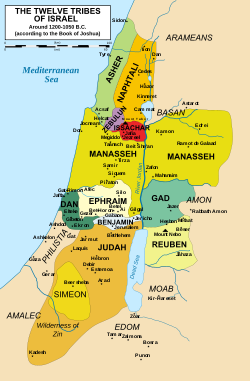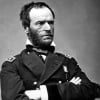Does anyone realize that the Bible was put together by a council?
Why does everyone think that the Bible was written and put together by God? Don't people realize that there are many holy books and manuscripts that have been excluded from the Bible? St. Thomas Aquinas wrote one and it was omitted from the Bible by a group of people a few hundred years after Jesus walked the earth? Why should we put our trust in this random group of men?
Confusing.
Wasn't Thomas Aquinas born, not a few hundred, but several hundred years after the writing of the Bible, and even after the Nicean Council?Thomas Aquinas died on March 1274. A few hundred years after Jesus walked the earth, Thomas Aquinas would not have been born yet.
wiki:
A number of erroneous views have been stated regarding the council's role in establishing the biblical canon. In fact, there is no record of any discussion of the biblical canon at the council at all
http://en.wikipedia.org/wiki/First_Coun … onceptionsFrom the same article, under purpose of the council:
" In the Council of Nicaea, "The Church had taken her first great step to define revealed doctrine more precisely in response to a challenge from a heretical theology."
Is there a real difference between "revealed doctrine" and "canon"? Not being Catholic, they sound much the same to me...I will help you Wilderness, and I won't bum steer you, you can trust me. I have seen this same argument made many times and for some reason, that lacks understanding, it makes its rounds over and over again.
The quote should be "define revealed doctrine" and "canon".
Canon is a combination of particular books that are incorporated in particular bibles. Some bibles have some books that others do not, because some have found some to be more authoritative than others. Some bibles contain more books than others. Some believe that some books are apocrypha and exclude them from the collection. Other bibles include apocrypha. Apocrypha exists whether it is included in a certain bible or not.
Defining revealed doctrine is a different matter, altogether. That still goes on today. For instance, my beliefs are different than other more main stream Christians in some ways. We differ on doctrine. We differ on what the existing books and text may say or mean. Apocrypha in the NT does not have much of a bearing on defining revealed doctrine. I am not an expert on NT Apocrypha, but I do not believe by it's exclusion from some bibles, yet inclusion in others, makes any difference in defining doctrine.
In the development of the Hebrew canon of the Old Testament in Judaism, they did have a propensity to exclude OT Apocrypha, to influence their (Judaism) doctrine, but that has nothing to do with defining revealed doctrine in the NT.
Canon is a collection of books. Defining revealed doctrine is (as just examples) a debate on whether Jesus was created by God, or was with God in the beginning or both, or whether Jesus IS God, or Jesus is the Son of God. One is a collection of books. Another is a debate on what the books say. That is what the council did. They debated the doctrines.Understood. But it would them seem that the canons were required to match the revealed doctrine that the first council came up with - any writing that did not agree would not be included in the bible. In that manner of speaking, that council did indeed control the canons even though they were not decided upon for centuries.
The council did not change canon. They just debated the already existing canon. Apocrypha is still here. It did not go anywhere. Apocrypha is still included in some bibles. If the councils goal was to influence doctrine by getting rid of Apocrypha, well they failed, because it still exists. But that was not their goal anyhow. Apocrypha does not change any doctrine that I am aware of and it is still here. The council debated doctrine, we still do this today. The canon and apocrypha (included, excluded, laying on a shelf somewhere) is still here.
That would be incorrect, at least if we're talking about the same thing. There WAS no bible when the first council of Nicaea met; the bible did not exist for several more centuries. No bible, no canons (if by canons you mean the collection of books that would one day be compiled into the modern bible used by most of Christianity).
When I said the debated existing canon, I meant, they debated doctrine from whatever books they had. There is a claim that they even had deuterocanonical books at the council. None of which makes any difference on their (what they actually did at the council) debate at the council about the doctrine of Trinity, for example. "There is no evidence among the records of the First Council of Nicaea of any determination on the canon"-wiki - they just debated doctrine.
When you discuss the canon of the Hebrew Bible, it is important to remember that what you are talking about is the personal history of a family: the descendants of Jacob.
The first ten chapters of Genesis were not originally written in Hebrew, but were translated to Hebrew (Ivrit) from Sumerian in the days of our ancestor Eber (Iver), the ancestor for whom our family language is named. This was in the 3rd and 4th generations after the Great Flood. The rest of the Book of Genesis and the other books of the Hebrew Bible (Tanakh) were written by our historians (scribes) and prophets.
Originally, each book was a separate, hand-written scroll. Even today in synagogues throughout the world, hand-written scrolls are used and the value of each is the cost of a year's wages for a Hebrew calligraphy artist. Every king of ancient Israel was required to write the first five books of today's Bible in his own hand-writing on a scroll, or he couldn't be king. And, he had to write the scrolls in the actual presence of our Levitical priests (Deuteronomy 17:18). This task takes about a year.
With meticulous attention to accuracy, the scrolls of our people were reproduced as the family grew larger and more copies were needed. Not every community had a complete library; in fact, most did not.
What you have today in the Hebrew Bible is not a complete collection of all of our ancient texts. The discovery of the Dead Sea Scrolls in 1947 – 1956 produced portions of every book in a modern Bible (with the exception of Ruth), but it also produced more than 900 remnants of other scrolls. You may view portions of the actual scrolls from Israel (written more than 2,000 years ago) here: http://dss.collections.imj.org.il.
The books comprising a modern Bible contain references to dozens of other books that we have lost over the years, during war and dispersion, such as: The Book of Jasher (Joshua 10:13 and 2 Samuel 1:18); the Book of the Wars of God (Numbers 21:14; The Annals of the Prophet Iddo (II Chronicles 9:29, 12:15, 13:22), and etc.
However, as far as the basic books required for connection and obedience to our God – the core curriculum we are required by commandment to teach to our descendants – our historian Flavius Josephus (37 CE – c. 100 CE) wrote this for the Romans who destroyed the Second Temple in Jerusalem (70 CE):
"For we have not an innumerable multitude of books among us, disagreeing from and contradicting one another [as the Greeks have], but only twenty-two books, which contain all the records of all the past times; which are justly believed to be divine; and of them five belong to Moses, which contain his laws and the traditions of the origin of mankind till his death… the prophets, who were after Moses, wrote down what was done in their times in thirteen books. The remaining four books contain hymns to God, and precepts for the conduct of human life." http://www.ccel.org/j/josephus/works/JOSEPHUS.HTM
This was, and still is, the basic canon – the library of a people.Very interesting, thank you for your insight.
Just a comment and anecdote or two on what you say about the Dead Sea Scrolls.
I visited Qumran last year on a pilgrimage to the Holy Land. For those who don't know, it is the site of a Jewish sect who lived in community, bathed, prayed, ate and wrote scribes together. You could almost compare them to a cloister in one sense. One thing that struck me was how developed the water irrigation system was considering how dry the land was. They bathed exclusively in fresh water before every meal in various large communal bathes. The water was then emptied out each time. I digress.
The information I have is simply what the Jewish people who curate the site tell visitors, so please excuse me if I say anything incorrect. The Dead Sea scrolls were actually discovered in one cave initially and a second soonish after, and more since I believe. A good number of the scrolls simply pertained to the rules and tradition of the Qumran sect that lived there. However some were copies of scripture (which, it is claimed, differ to varying degrees to the Jewish bible) and some are New (or should I say previously undiscovered) altogether.
Interestingly, it is claimed in Qumran that St John the Baptist had some contact with the sect and was even invited to stay with them. However after a period as a novice he left before being fully tonsured into the sect. It is also claimed that news of his death went back to members of the sect through passing travelers.The Biblical texts found date from 300 BCE. "The texts from Qumran proved to be word-for-word identical to our standard Hebrew Bible in more than 95 percent of the text. The 5 percent of variation consisted primarily of obvious slips of the pen and spelling alterations" (Archer, 1974, p. 25). Further, "There were no major doctrinal differences between the accepted and Qumran texts. This forcibly demonstrated the accuracy with which scribes copied sacred texts, and bolstered our confidence in the Bible’s textual integrity." (Yamauchi, 1972, p. 130).
Non-Biblical texts found at the site are in handwriting from later periods: The writing style of the Hasmonean period (c. 150 BCE – 30 BCE) and the Herodian period (c. 30 BCE – 70CE).
Found in a nearby cave, the Copper Scrolls (c. 50 –100 CE) identify the Qumran site and its waterworks as the ancient Biblical city of Secacah (c. 1406 BCE, Joshua 15:61).
"Manuscripts from additional Judean desert sites go back as far as the eighth century BCE to as late as the 11th century CE." (http://www.deadseascrolls.org.il/learn- … troduction)
Although many Christians would like to find some reference to their religion in the scrolls, there are no references to Christianity or to characters from the Christian testament. What is said to Christian tourists by tour guides is simply to garner a higher tip.
The references to St John the Baptist were a complete aside and had nothing to do with the scrolls themselves directly. I have to agree that I find the likelihood of what they said being true to be somewhat dubious. Although there is evidence that St John the Forerunner did spend time in the vicinity of the Qumran site, there is also another site that is put forward as a likely candidate.
"What is said to Christian tourists by tour guides is simply to garner a higher tip." - This I find quite likely
"Although many Christians would like to find some reference to their religion in the scrolls, there are no references to Christianity or to characters from the Christian testament." - This is an age old debate that has reached a deadlock. The Jews such as the Pharisees and others do not believe that Jesus fulfilled the prophecies and many of the Jews that came into contact with Christ did, as do all Christians.There is no mention of Jesus even as an historical figure in any of the scrolls. There is no "the Messiah" in the Hebrew Bible. "The Messiah" doesn't exist in the Christian testament either.
The Greek word for 'the anointed' or Mashiach is Cristos or Χριστός.
The problem, Huw, is not the word 'anointed'; rather, it is the word 'the.' There are no definite articles in the Greek language, no 'the', 'a' or 'an.' There are lots of 'messiahs' in the Hebrew Bible (people and objects). These have been anointed with holy anointing oil (Exodus 30:32-33) by a prophet or priest. To say 'the messiah' indicates that there is only one, and that simply is not true – not in the past nor in the future.
And, there are no earlier extant manuscripts of anything in the Christian testament written in Aramaic or in Hebrew. In fact, no evidence has ever been found to link the Christian testament documents to an origin in Israel. Truly, people have looked for such evidence because the market for archaeological antiquities from Israel is quite lucrative and people are searching every day to find them.
http://www.foundalis.com/lan/definart.htm
John 11: 27 "λέγει αὐτῷ· ναὶ κύριε, ἐγὼ πεπίστευκα ὅτι σὺ εἶ ὁ χριστὸς ὁ υἱὸς τοῦ θεοῦ ὁ εἰς τὸν κόσμον ἐρχόμενος."
ὁ χριστὸς is "The Christ".That is a list of demonstrative pronouns. In earlier Greek, for instance Homeric Greek, there was no definite article as such, the corresponding forms still having their original use as demonstrative pronouns.
"The Greek article was originally a weak demonstrative pronoun / adjective (i.e., a weaker form of "this," "that," "these," "those") … Thus, the Greek article originally served a completely different function than the English definite article "the." Then the Greek article developed many uses which are far more closely related to its original Greek function than to the functions of the English definite article. The Greek article definitely is not just an equivalent to the English definite article "the." Nor is the absence of the Greek article simply an equivalent to the English indefinite article ("a" or "an"). Therefore, in translating Greek into English, we cannot automatically always use an English definite article "the" in the place of a Greek article. There are many times when one will use no English article in the translation. And sometimes one can even use an indefinite English article in translating a Greek article." http://inthesaltshaker.com/drills/article.htmThat passage just says that someone named Martha believed "that you are anointed." But, it does not say by whom or for what purpose. And, there is no 'the' implied which would suggest a 'single' anointed one. The concept of 'the Messiah' is not in there. It isn't in the Hebrew Bible, either.
Be that as it may, there is nothing to say that 'ὁ χριστὸς' cannot at any time have the same meaning as 'The Christ'. The cases of the nouns also support the correct translation, as does the context.
There are numerous Greek Scholars in the Greek Orthodox Church that accept and understand this and do not even see it as a cause for debate.
My profession is that of a translator so I am keenly aware of how grammatical nuances can come into play when translating from one language to another. However, I am also keenly aware that it is perfectly possible to understand a text in its source language and context and reproduce it faithfully in the target language despite some source language obstacles. I do it every day.
The bibles we use in the Greek (and other) Orthodox Church have been translated and authenticated by bilingual Greek Scholars. The idea that mistranslations have gone completely unseen for thousands of years is simply illogical. Also there is a definite article in Hebrew.Yes, there is a definite article in Hebrew. And, you won't find " The messiah" in the Hebrew.
"The New Testament was written in Koine Greek.
"The discovery of older manuscripts, which belong to the Alexandrian text-type, including the 4th century Codex Vaticanus and Codex Sinaiticus, led scholars to revise their view about the original Greek text. Attempts to reconstruct the original text are called critical editions. Karl Lachmann based his critical edition of 1831 on manuscripts dating from the 4th century and earlier, to demonstrate that the Textus Receptus must be corrected according to these earlier texts. However, it has not been proven that these older manuscripts are in fact more reliable than the Textus Receptus.
"The autographs, the Greek manuscripts written by the original authors, have not survived. Scholars surmise the original Greek text from the versions that do survive. The three main textual traditions of the Greek New Testament are sometimes called the Alexandrian text-type(generally minimalist), the Byzantine text-type (generally maximalist), and the Western text-type (occasionally wild). Together they comprise most of the ancient manuscripts.
"Most variants among the manuscripts are minor, such as alternative spelling, alternative word order, the presence or absence of an optional definite article ("the"), and so on." http://en.wikipedia.org/wiki/Bible_translations
If you base your entire religious belief on 'the', perhaps you should reconsider.
"If you base your entire religious belief on 'the', perhaps you should reconsider." I don't so that's fine. It's a completely obscure point, which doesn't mean that all of the cases of ὁ χριστὸς being translated into "The Christ" are wrong. The context speaks for itself as do the people who wrote and interpreted Scripture in the early centuries.
How would you translate "λέγει αὐτῷ· ναὶ κύριε, ἐγὼ πεπίστευκα ὅτι σὺ εἶ ὁ χριστὸς ὁ υἱὸς τοῦ θεοῦ ὁ εἰς τὸν κόσμον ἐρχόμενος." out of interest?
Interestingly, unlike Greek or Hebrew, Russian, Ukrainian and Church Slavonic categorically do not have the definite article in their languages or the indefinite article for that matter. However the Russian Orthodox Church has exactly the same understanding of Scripture as it's Greek counterpart. My wife is Ukrainian and therefore Russian and Ukrainian Speaking. So I asked her how she differentiates "the" from "a" from plural and so on (a/the Messiah, Messiah and Messiahs completely aside at this point). She simply said it's clear from the noun, it's case, the context in which it is used, or simply in the word itself and phrasing used. Without the words "the" and "a" at all in their language it is perfectly possible to convey the idea of The book or bicycle as apposed to A book or bicycle.Even the Jews believe in a/the Messiah. I quote this from the website Judaism 101:
"The Messianic Idea in Judaism
Belief in the eventual coming of the mashiach is a basic and fundamental part of traditional Judaism. It is part of Rambam's 13 Principles of Faith, the minimum requirements of Jewish belief. In the Shemoneh Esrei prayer, recited three times daily, we pray for all of the elements of the coming of the mashiach: ingathering of the exiles; restoration of the religious courts of justice; an end of wickedness, sin and heresy; reward to the righteous; rebuilding of Jerusalem; restoration of the line of King David; and restoration of Temple service.
Modern scholars suggest that the messianic concept was introduced later in the history of Judaism, during the age of the prophets. They note that the messianic concept is not explicitly mentioned anywhere in the Torah (the first five books of the Bible).
However, traditional Judaism maintains that the messianic idea has always been a part of Judaism. The mashiach is not mentioned explicitly in the Torah, because the Torah was written in terms that all people could understand, and the abstract concept of a distant, spiritual, future reward was beyond the comprehension of some people. However, the Torah contains several references to "the End of Days" (acharit ha-yamim), which is the time of the mashiach; thus, the concept of mashiach was known in the most ancient times.
The term "mashiach" literally means "the anointed one," and refers to the ancient practice of anointing kings with oil when they took the throne. The mashiach is the one who will be anointed as king in the End of Days."
...
"The following passages in the Jewish scriptures are the ones that Jews consider to be messianic in nature or relating to the end of days. These are the ones that we rely upon in developing our messianic concept:
Isaiah 2, 11, 42; 59:20
Jeremiah 23, 30, 33; 48:47; 49:39
Ezekiel 38:16
Hosea 3:4-3:5
Micah 4
Zephaniah 3:9
Zechariah 14:9
Daniel 10:14"I know that it is difficult for you to understand the progression of Judaism and the multitude of texts beyond the Hebrew Bible. Maimonides, 'the RaMBaM', wrote in the Middle Ages and his declaration of faith was in reaction to Islam and Christianity in Egypt. The Amidah, (Shmoneh Esreh), is somewhat different in various versions of the Hebrew prayer book.
The concept is not the same as the Christian concept. What we believe in unison is what God has given in His Own words through verified prophets. God gave prophecies in the 6th century BCE to Ezekiel that the time would come when the Tribe of Judah and the lost Tribes of Israel would return to the land of Israel, and live according to God's laws, under one government and one leader – something only now being fulfilled in our day.
After Mt. Moriah erupts from tectonic activity, the House of God will be built there and God will dwell among His people and reign as King. The land will be divided by inheritance, and those from the Tribe of Levi will have the land surrounding the Temple Mountain. The next portion will go to the (anointed) human Prince and his descendants, for he will be married and have children. ("As the host of the heavens cannot be counted and the sands of the sea cannot be measured, so I will multiply the descendants of David My servant, and the Levites who minister to Me.) The Prince's name will be ' Yazadeknu.'
This future time is known as the 'anointed age' (messianic age) or 'the Kingdom of God.' The Temple will never be destroyed and the Davidic rule will remain forever.
These prophecies are promises, and they are unconditional.
Zechariah 14; Jeremiah 23; 33; Ezekiel 34; 37; 40 – 48; among others.Thanks for sharing your insights and wisdom, Huw Watkins! May God bless you!
Mat 16:16 And Simon Peter answered and said, Thou art the Christ, the Son of the living God.
Mat 16:17 And Jesus answered and said unto him, Blessed art thou, Simon Barjona: for flesh and blood hath not revealed it unto thee, but my Father which is in heaven.
Not an earthly knowledge of who Jesus is, but a Heavenly knowledge, which is spiritual.The discussion was about the word "the". Also, 'messiah' and 'christ' are attempts to translate the Hebrew word 'anointed.' See this discussion above: http://hubpages.com/forum/topic/82448?p … ost2697001
You state ""The Messiah" doesn't exist in the Christian testament either" - this is simply not true.
As for "There is no "the Messiah" in the Hebrew Bible." - Many Jews would differ with you on that point also.
Your denial of faith appears to be based on a single grammar point, a highly debatable one at that.
Here is the first of Blessed St John Chrysostom's homilies on the Jews. Perhaps you will find it interesting. It was written and delivered in Greek, the English translation here:
http://www.tertullian.org/fathers/chrys … omily1.htmI suppose, then, you should review the earlier part of this thread about the word 'the' in Greek and the meaning of the word 'anointed' in Hebrew.
"Outside the Christian tradition Chrysostom is noted for eight of his sermons which played a considerable part in the history of Christian antisemitism, and were extensively misused by the Nazis in their ideological campaign against the Jews … The diatribes of St Chrysostom against the Jews were rivaled only by Hitler." http://en.wikiquote.org/wiki/John_Chrysostom
How revealing it is that you agree with that 4th century diatribe!
It's interesting that Chrysostom hates the commandments of God and His festivals – especially Sukkot. (According to the Christian testament, Jesus kept these festivals.) This year, over 6,000 Christians came to Jerusalem to celebrate Sukkot: https://www.youtube.com/watch?v=mvIO4mzjY1I. So, certainly not all Christians agree with his hatred of God and God's commandments to keep these festivals.
Also, the Christian testament says that the Roman soldiers killed Jesus. Jesus wasn't so special. The historian Josephus records that 5,000 Jews were crucified by the Romans on the hills of Jerusalem. Even the Pope finally admitted this as a part of the Second Vatican Council (1962–1965).
Yes what you claim earlier in the thread is that "There are no definite articles in the Greek language, no 'the', 'a' or 'an.' " However every Greek person I know, including my Greek teacher say that this is simply not true. Either way, the fact that the Greek article may or may not have had the function of a weaker form of This/that etc does not negate the fact that Christian scriptures are talking about The Messiah. All the Greeks of the time understood it as such as do Greeks today. A cursory reading of St Paul's epistles confirms this beyond any doubt.
What St John Chrysostom is preaching is not anti-semitism. He wrote numerous homilies on all subjects, many of which stressed the need to love and pray for one's enemies - a core component of Christianity in fact. What he is doing in his Homilies against Jews is vehemently denying a religion that, at best had gone into error, and at worst was a completely false religion. The concept of anti-semitism is a modern day concept and St John certainly did not hate Jews, that would be inherently anti-Christian.
His condemnation of a false religion must be understood in context and not couched in modern terms such as anti-semitism. This for example:
"But do not be surprised that I called the Jews pitiable. They really are pitiable and miserable. When so many blessings from heaven came into their hands, they thrust them aside and were at great pains to reject them. The morning Sun of Justice arose for them, but they thrust aside its rays and still sit in darkness. We, who were nurtured by darkness, drew the light to ourselves and were freed from the gloom of their error."
or This:
"Nothing is more miserable than those people who never failed to attack their own salvation. When there was need to observe the Law, they trampled it under foot. Now that the Law has ceased to bind, they obstinately strive to observe it. What could be more pitiable that those who provoke God not only by transgressing the Law but also by keeping it? "
The purpose of his Homilies were to make sure the Christian faithful did not fall into the same error.
This is clear here:
"For if the enemies of the truth never have enough of blaspheming our Benefactor, we must be all the more tireless in praising the God of all. But what am I to do? Another very serious illness calls for any cure my words can bring, an illness which has become implanted in the body of the Church. We must first root this ailment out and then take thought for matters outside; we must first cure our own and then be concerned for others who are strangers."
And here:
"But now that the Jewish festivals are close by and at the very door, if I should fail to cure those who are sick with the Judaizing disease. I am afraid that, because of their ill-suited association and deep ignorance, some Christians may partake in the Jews' transgressions; once they have done so, I fear my homilies on these transgressions will be in vain. For if they hear no word from me today, they will then join the Jews in their fasts; once they have committed this sin it will be useless for me to apply the remedy.
And so it is that I hasten to anticipate this danger and prevent it. This is what physicians do. They first check the diseases which are most urgent and acute. But the danger from this sickness is very closely related to the danger from the other; since the Anomians impiety is akin to that of the Jews, my present conflict is akin to my former one. And there is a kingship because the Jews and the Anomians make the same accusation. And what charges do the Jews make? That He called God His own Father and so made Himself equal to God. The Anomians also make this charge-I should not say they make this a charge; they even blot out the phrase "equal to God" and what it connotes, by their resolve to reject it even if they do not physically erase it."
To equate St John Chrysostom to Hitler is ugly propaganda. Hitler was in no way a true Christian and did not have the salvation of the Christian faithful at heart. They are chalk and cheese.
Nobody is arguing that Romans did not crucify Jews. In fact Christ was crucified alongside two Jews. St Peter was crucified in Rome upside down. It is not the mere fact of his Crucifixion that renders Christ 'special' as you say. This shows a complete lack of understanding of the Scriptures.His writings are hatred against the God of Israel and deny God's words:
"And I will bless those who bless you,
And the one who curses you I will curse." (The Covenant of God with Abraham and his descendants through Jacob.)
"How long will you refuse to keep my commandments and my laws?"
"It is a statute for ever in all your dwellings throughout your generations."
"But the person who does anything defiantly, whether he is native or an alien, that one is blaspheming God; and that person shall be cut off from among his people. Because he has despised the word of God and has broken His commandment, that person shall be completely cut off; his guilt will be on him.”
"Know therefore that the LORD your God, He is God, the faithful God, who keeps His covenant and His lovingkindness to a thousandth generation with those who love Him and keep His commandments; but repays those who hate Him to their faces, to destroy them; He will not delay with him who hates Him, He will repay him to his face. Therefore, you shall keep the commandment and the statutes and the judgments which I am commanding you today, to do them."
"I, even I, am God,
And there is no savior besides Me."
"And you were not to know any god except Me,
For there is no savior besides Me."
"Hatred against the God of Israel" is personified in the Jews when they falsely accuse God's beloved creation and murder them based on false witness. This is patently clear in the first Martyr of Christianity - Apostle Stephen the Protomartyr (also a Jew), who was falsely accused and stoned to death by a Jewish mob. St Paul (or Saul as he was then) was an eye witness to this.
It is no wonder God said to Moses:
"How long will you refuse to keep my commandments and my laws?"
I believe that "Thou shalt not kill" is one of those eternal statutes.
St Stephen's reaction to the stoning and just before death was to pray to God “Lord, do not hold this sin against them.”. This is the fundamental difference between Christianity and Judaism. The Jews, time and again, have turned their back on the God of Israel and have broken his eternal statutes. The Jewish persecution of fellow Jewish Christians and Gentile Christians is rivaled only by that of the Romans and later the Muslims.
Amazingly, despite the Hebrew Bible recounting the tale of a family history, of a persecuted chosen people, Jews seems utterly incapable of learning from the history of their own persecution and are unable to stop themselves from doing the same, contravening the God of Israel's commandments time and again.
It is this seat of deep rooted hypocrisy and denial of God that the Blessed St John Chrysostom warns the Christian Faithful against.Paul was the instigator and the leader of that murder (Acts 7:57,58) and gave hearty approval (Acts 8:1). Not only that, but the vigilante Paul then traveled all the way to Damascus to hunt down Christians and to murder them (Acts 8:3; 22:4-5). That is the same Paul that the Greek church recognizes as its chief theologian!
Judaism in no wise denies God. It is just the opposite. And, unlike John Chrysostom (who was born of pagan parents and educated in pagan schools), Judaism does not accept praying to icons, statues, idols or other 'gods'), because that violates the commandments of God. (See the first four of The Ten Commandments.) I know you just signed up to HubPages to reactivate and comment on this three-year-old forum thread, but one of the rules here is to stick to the topic of the thread or open a different thread. This thread is about the 'canon' and the writings of Chrysostom aren't part of the canon.
God's promises to the descendants of Jacob are unconditional and they will survive beyond the actions of those who violate His commandments. The Tribes of Israel will survive beyond the anti-Antisemitism of this age as they have in all ages past. If this were not true, then there is no God."God's promises to the descendants of Jacob are unconditional and they will survive beyond the actions of those who violate His commandments..." Indeed, God will keep all His promises. Israel is beloved of God. She was chosen first, making her like our "older sibling", and God will truly fulfill all His promises to her. It is only because of her that the Way was opened up for all us gentiles, just as it was prophesied that it would be, and we owe her our gratitude.
Even those who belong to God deny Him in many ways. We may deny Him by our lifestyles, our lack of love, our failure to recognize Him and what He is doing, and so on. Judaism denies God in that they deny Emmanuel - God with us. It was to Israel that God came in the flesh as Jesus Christ our Lord and Savior. But as purposed by God, she did not receive Him, so that the Way could be opened up for all of us who were once far from the Lord - "Just as He says in Hosea, Those who were not My people I will call My people, and her who was not beloved I will call My beloved." (Romans 9:25) Again, we owe our gratitude to the Jewish nation. And God is forever faithful to her. Her separation from God was only temporary and for the great purpose of grafting people from all nations in. She will yet have her day and will be with the Lord forever!We are required to deny all other gods and the gods of other peoples. 'Emmanuel' is not the name of the God of Israel. The name of the God of Israel is spelled in the Hebrew: Yud Hey Vav Hey: יהוה
We only worship one God. This is the first of The Ten Commandments:
“I am יהוה your God, who brought you out of the land of Egypt, out of the house of slavery. You shall have no other gods before Me."
God has walked with many of our ancestors since the days of Adam and Eve and He personally led us out of Egypt, revealing Himself on the mountain of Sinai.
Gentiles have always been allowed to join us and to worship our God, if they love Him enough to keep His commandments and give up the worship of all others: "As for the assembly, there shall be one statute for you and for the alien who sojourns with you, a perpetual statute throughout your generations; as you are, so shall the alien be before יהוה. There is to be one law and one ordinance for you and for the alien who sojourns with you." (Numbers 15:15,16)
The great-grandmother of King David was a convert from the Moabite people. More than 250,000 have converted to Judaism in America alone, and more each day. We welcome them."The Lord himself will give you the sign. Look! The virgin will conceive a child! She will give birth to a son and will call him Immanuel (which means 'God is with us')." (Isaiah 7:14) Jesus Christ is "God with us". The Father has many names and is many things to us (the Almighty, Provider, Protector, Healer...). He truly is "I Am". Jesus is God in the flesh, and so he is Immanuel/Emmanuel, which means "God with us". Jesus/Emmanuel has many names and is many things to us as well (Savior, Light, the Way, the Word, the Bread, Prince of Peace...). Similarly the Holy Spirit (God) has many names and is many things to us (Comforter, Counselor...). Yet though He be our Healer and our Provider and our Comforter and our Light and our Savior and our Bread and our Protector, and though He be the Father, Son and Holy Ghost, He is indeed ONE God!
"God has walked with many of our ancestors since the days of Adam and Eve and He personally led us out of Egypt, revealing Himself on the mountain of Sinai." Yes!
Yes, Gentiles have always been allowed to convert to Judaism and attempt just as unsuccessfully as all others to keep all the commandments of the Law. But who has upheld the whole Law? None but Jesus. And if we miss the mark in the smallest of ways, we're guilty as lawbreakers. But the good news for both Jews and Gentiles is that Jesus Christ has come and done what we in our sinful natures could not do - kept the entire Law for us. He has further become the perfect sacrifice to make us pure and blameless in the sight of God. He is our Savior. So God Himself has come to us, even to us who had no righteousness of our own, seeking us even while we failed to fully seek Him. Through Jesus Christ, He has made the perfect Way for us to become righteous (which none could accomplish by the Law that all failed to fully keep) and now, being transformed into unblemished and righteous children, we may enter into His everlasting Kingdom! To Him be all glory both now and forevermore! Amen and amen!You have certainly learned your catechism well and you may believe whatever you want to believe. However, the Bible doesn't support what you have said here.
1. "Therefore יהוהי Himself shall give you a sign: behold, the young woman [the word used here is 'almah' which means young woman, not 'bethulah' which means virgin] shall conceive, and bear a son, and shall call his name Immanuel. He will eat curd and honey, when he knows to refuse the evil, and choose the good. For before the child shall know to refuse the evil, and choose the good, the land whose two kings you dread shall be forsaken. יהוהי shall bring upon you, and upon your people, and upon your father's house, days that have not come, from the day that Ephraim departed from Judah; even the king of Assyria." (Isaiah 7:14-17)
Immanuel was one of two babies mentioned in Isaiah 7. (Continue reading the entire passage through Isaiah 8 where the land of Immanuel is indeed attacked by the Assyrians.) These events occurred in the 8th century BCE. By the first century CE, there was no Assyria; it was overthrown by Babylon in 612 BCE.
2. The God of Israel only has one name: "God, furthermore, said to Moses, Thus you shall say to the sons of Israel, ‘יהוהי, the God of your fathers, the God of Abraham, the God of Isaac, and the God of Jacob, has sent me to you.’ This is My name forever, and this is My memorial-name to all generations." (Exodus 3:15)
3. The God of Israel will not be worshiped in a trinity. "יהוהי is our God, יהוהי is one!" (Deuteronomy 6:4) "Beware that your hearts are not deceived and that you do not turn away and serve other gods and worship them." (Deuteronomy 11:16)
4. Millions of people throughout history and millions today keep the commandments of God because they love Him. The covenant is not something that someone else can do for you. It is a personal relationship with God Himself. And the commandments are not difficult to keep. “For this commandment which I command you today is not too difficult for you, nor is it out of reach." (Deuteronomy 30:11) Did God lie? “God is not a man, that He should lie, nor a son of man." (Numbers 23:19)
5. The Christian testament records that Jesus of Nazareth expected people to keep the laws of God and those who do not will not be part of the kingdom: "I never knew you; depart from me, you who practice lawlessness.’" (see Matthew 7:21-23)
6. God does not accept human sacrifices, especially of one's own children. That is a practice of pagan religions and particularly of those who worship Molech. (See Jeremiah 7 and 32.)
“They have no knowledge,
Who carry about their wooden idol
And pray to a god who cannot save …
Declare and set forth your case;
Indeed, let them consult together.
Who has announced this from of old?
Who has long since declared it?
Is it not I, יהוהי?
And there is no other God besides Me,
A righteous God and a Savior;
There is none except Me.
Turn to Me and be saved, all the ends of the earth;
For I am God, and there is no other." (Isaiah 45:20–22)
Sunset is near and the Sabbath is approaching in Jerusalem. You still have time to prepare for its arrival in your hemisphere. It is the commandment of God and only His Sabbath is to be observed: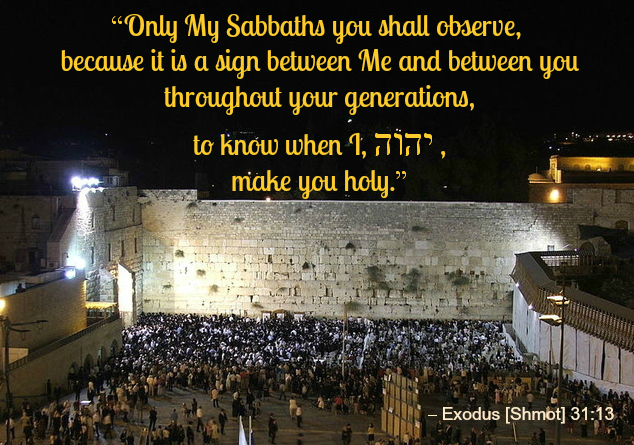
Thank you for your response Writer Fox.
The Isaiah Scripture was considered to be referring to a virgin even by Jewish rabbis. In ancient Hebrew culture, young unmarried women were assumed as virgins, and "in the 3rd century B.C., when a panel of Hebrew scholars and Jewish rabbis began the process of translating the Hebrew Scriptures into Greek, they used the specific Greek word for virgin, 'parthenos', not the more generic Greek word for 'young woman'." (http://www.gotquestions.org/virgin-or-young-woman.html)
All throughout Scriptures we find multiple meanings on various levels - often an immediate meaning and also a foreshadowing of future events.
God, the great "I Am", is ONE. But you will find various names for this One God even throughout the Old Testament. El Shaddai, meaning “God Almighty”: “When Abram was ninety-nine years old, the Lord appeared to him and said, ‘I am God Almighty.’” El Elyon, meaning “the Most High God”: “Then Melchizedek king of Salem brought out bread and wine. He was priest of God Most High.” El Roi, meaning “the God Who Sees”: "[Hagar] gave this name to the Lord who spoke to her: ‘You are the God who sees me.’”El Yisrael, meaning “the God of Israel”: “Now Haggai the prophet and Zechariah the prophet, a descendant of Iddo, prophesied . . . in the name of the God of Israel.” (http://www.exploregod.com/names-of-god-in-the-bible?)
We use the term Trinity for clarification more than anything, but He is ONE God.
I've never seen or heard of a person who FULLY keeps ALL the commandments, so that even his/her heart is pure in all areas of the Law (e.g., Never any coveting). While it is not hard to fulfill the Law THROUGH FAITH (which may be why it is said to not be hard), and to be COUNTED AS RIGHTEOUS through this faith and not by works, it is impossible for sinful humans to keep every aspect of the whole Law.
Truly God detested the human sacrifices of those who worshiped false gods, and He would never have us sacrifice a human. But He would make the sacrifice Himself as the perfect Lamb Jesus Christ, and that is exactly what He did!That simply isn't true, as I responded above with details. Only the Greeks believed that. The passage in Isaiah is about Immanuel, a child of Ahaz, and the prophecies given for what would happen during the infancy of that child were fulfilled in the 8th century BCE. Those wars had nothing to do with the Roman conquests far later in history.
The God of Abraham, Isaac and Israel only has one proper Name (יהוהי), and that is His statement. (Exodus 3:15) "Thus says יהוהי, the King of Israel and His Redeemer, יהוהי of hosts: ‘I am the first and I am the last, and there is no God beside Me.'" (Isaiah 44:6)
It was the Nicene Council (the 381 CE version) and even more especially the Athanasian Creed (6th century CE) which first defined the idea of a trinity. The concept does not exist in the canon of the Christian testament. And, the worship of the God of Israel in conjunction with another other gods was specifically condemned over and over again in the canon of the Hebrew Bible.
Then, I suppose you have never heard of Abraham: "Abraham obeyed Me and kept My charge, My commandments, My statutes and My laws.” (Genesis 26:5) Did God lie? (Numbers 23:19) There are many other examples in the Hebrew Bible. Today, the majority of the population of Jerusalem is observant. If you have not found observant people, it is because you have not looked for them.
Why do you deliberately choose to be a 'sinful human?' (See Numbers 15:30) How do you know that you are incapable of keeping the Covenant with God if you have never tried? Can you really not control your own actions? Is it really so difficult to stop working from Friday at sundown through Saturday at sundown that you cannot restrain yourself? If you are anxious and panicked, it is because you do not keep the Sabbath day of holiness and rest – it is the natural outcome. And is it really so difficult to control your appetite for pig flesh, crustaceans, animal fat and blood – all which make your soul detestable to God? (Leviticus 20:25) It is your choice. But it is better to "choose life that you may live." (Deuteronomy 30:19)
It is impossible for a human to kill the God of Israel. You simply do not understand His nature or His power. And if you worship a god who killed himself, why would you worship a god of suicide?
"You will seek Me and find Me when you search for Me with all your heart." (Jeremiah 29:13) Until you do that, you will only find those who lead you astray on that wide path. If you want to find the God of Abraham, Isaac and Israel, you will only find His words in the canon of the Hebrew Bible – the only place where He is mentioned by His Name and directly quoted.Yet it was Jewish rabbis who translated the word as "virgin" in 3rd century BC, as a young woman was assumed as a virgin. The passage in Isaiah was prophesying about Jesus Christ, whether it had a more immediate meaning as well or not (Just as the story of Abraham and Isaac was both immediate and a foreshadowing of God giving us His only begotten Son).
He is ONE God, though He has described Himself in many ways (God Almighty, Provider, Healer, "I AM", etc.). "I am the first and I am the last, and there is no God beside Me." (Isaiah 44:6) Amen!!
Jesus Christ is God revealed to us, God come to us, God with us. He is NOT another God. We don't even have to use the word Trinity (which I'm aware is not in the Word). Forbid it that we worship any God other than the ONE LORD!
You're saying the majority of the population of Jerusalem never even covet? I don't believe that. Abraham obeyed God through FAITH. He did not perfectly keep the Law and God's ways, as we see when he lied about his wife being his sister. But because of his faith he was COUNTED as righteous. And we, like Abraham, live by faith.
I don't deliberately choose to be sinful. I hate sin and I agree that God's ways are perfect and good. Yet I sin - feared instead of trusting, lost my temper, let a self-protecting lie slip out, got jealous of someone, lusted after another, failed to do all the good that was within my power, acted in a self-serving way, etc. I have tried and failed to keep His ways. You ask, "Can you really not control your own actions?" Exactly! Rather, what I hate I do... How can anyone claim otherwise?
Now, animal fat I don't care much for, and the Sabbath, that is absolutely beautiful! Rest in the Lord....
I have been anxious because I have listened to lies of the devil while under demonic attack, let him convince me I was dying and would leave my two babies in the care of only their alcoholic father, failed to understand that they are held and protected by God Himself, listened to lying symptoms (which always turn out to be nothing), let my naturally anxious personality take over, let negative thoughts in and form negative pathways and habits, failed to have faith and trust in the Lord, tried to do things in my own strength and with my own power, and yes, failed to keep His Sabbath, that is, failed to rest in Him...
You are right that it is impossible to kill the God of Israel, our Father. Only when He put Himself into a human body, subjected Himself to the limitations of a human, and laid down His own life for us, did He become the perfect sacrifice. He is our salvation and the very Way to God our Father!Yes, I think you have made your worship practices very clear. Just so long as you understand that you worship someone in a human body named Jesus and he is the one you pray to and whose name you honor.
Or, Jesus is the one whom Job spoke of in the Old Testament. Job 9:33 Neither is there any daysman betwixt us, that might lay his hand upon us both. What is a daysman?
H3198
יכח
yâkach
BDB Definition:
1) to prove, decide, judge, rebuke, reprove, correct, be right
1a) (Hiphil)
1a1) to decide, judge
1a2) to adjudge, appoint
1a3) to show to be right, prove
1a4) to convince, convict
1a5) to reprove, chide
1a6) to correct, rebuke
1b) (Hophal) to be chastened
1c) (Niphal) to reason, reason together
1d) (Hithpael) to argue
Who can truly judge but God? Why would there be a need for a daysman between man and God?To be clear, I pray to God the Father In Jesus' name. I honor and worship my Lord and Savior Jesus Christ, who is God incarnate, and I worship Him as the ONE true God - the same God of Abraham, Isaac and Jacob, the God of Israel. To worship Jesus is to worship God.
Jesus Christ is no longer in a human body, but rather since being resurrected, he has a new spiritual body and he is seated at the right hand of God the Father, who is eternally enthroned.This isn't very clear to me; this looks like two beings: praying to one being in the name of another being.
It still sounds like you worship two gods. (The God of Abraham, Isaac and Jacob was named: יהוהי. That Name isn't even close to the name 'Jesus.' It's a completely different name.)
"And Elijah came to all the people, and said, “How long will you falter between two opinions? If יהוהי is God, follow Him; but if the Lord [the Ba'al], follow him.” (I Kings 18:21)
If you want to worship Jesus as your god, why do you need to associate him with any other?
And why does 'one' god need two different chairs to sit in? One being only needs one chair; two beings need two chairs.

Yall leave out some furniture?
The Lord hath said to me: Thou art my son, this day have I begotten thee.
I may be wrong but it seems both sides believe only one exists. One side believes there is no son and the other side seems to believe there is only a son.This is what I believe:
“At that time, declares יהוהי, I will be the God of all the families of Israel, and they shall be My people ...
"For I am a father to Israel,
And Ephraim is My firstborn.”
(Jeremiah 31:1,9)
And, no, the human Ephraim is not to be worshiped, not to be prayed to and not to be prayed 'through.' Ephraim is a brother, who became a tribe, and who produced Kings of Israel when the Kingdom was transferred from the Tribe of Judah.
Then it seems we wouldn't need any chairs or footstool, at all. We will need a map?
That's a great Psalm, isn't it? (There are no prophecies in the Psalms, but they do tell you much about the mind of King David and the other poets who wrote them.) Except the translation you are using is way off:
"Serve יהוהי with fear, and rejoice with trembling. Do homage in purity, lest He be angry, and you perish in the way, when suddenly His wrath is kindled. Happy are all they who take refuge in Him."
Did you know that King David's rule extended from the Nile to the Euphrates? All of those kingdoms paid tribute to King David in Jerusalem (1,000 BCE).Do homage in purity would be even better.
Psalm 2 is considered Messianic by many Rabbis.
http://en.wikipedia.org/wiki/Psalm_2#In … _traditionExcept that the prophecies about the wars of Gog and Magog (Ezekiel 38) had not been given yet. Those prophecies were given in the 6th century BCE to Ezekiel.
But, the anointed Prince who will reign after those wars (Ezekiel chapters 40 – 48) will establish a military rule like King David, from the Nile to the Euphrates.We have differing beliefs. I have to speculate on what you believe. I am unsure whether you believe in a messiah or two messiahs or one messiah and a co-messiah or no messiah at all. There seems to be a wide variety of potential beliefs - http://en.wikipedia.org/wiki/Jewish_messianism
The commonality of those various beliefs, if any belief at all, in a messiah, seem to be qualifications and expectations. Hence, as just an example, some kind of adherence to a chronology of assumed prophecy, or personally interpreted prophecy. Also, there are some unspoken qualifications. For instance a messiah "candidate" could have a great résumé, but he says he believes in fallen angels, or he believes in a certain type of hell or he accepts Jesus. So he is not selected, or is rejected or however that is put best. One side is not going to accept anyone that accepts Jesus, and the other side is not going to accept anyone that rejects Jesus, especially if they want to re-institute sacrifices. In that case, one persons assumed prophecies could be another's nightmare or a prophecy of something else altogether.
This differs dramatically from my beliefs. My personal beliefs are not the same as all Christians. In my belief it is kind of like a family business. There is a Father and Son. The qualifications are inherited and by birth alone, nothing has to line up with anything, nothing has to be approved by man. The relationship between any father and son or really any parent/child relationship has a more surer bond. There is a deeper trust. When wielding a lot of power, trust is important. If you just give power to anyone, well, they will often take that given power and take credit for it themselves, in instances and it tends to corrupt, so it is best to keep it in the family.I believe in what the Hebrew Bible records: that the English word 'messiah' which you are using just means 'anointed' (משיח). And, there are lots of messiahs in the Bible: some are people and some are inanimate objects. What they all have in common is that they were anointed with anointing oil.
Heredity only goes so far. Consider the unrighteousness of King David's sons and the many anointed Kings (messiahs, all) of his lineage who "did evil in the sight of God." Sons have freewill and make their own choices. This is one reason why checks and balances are already in place to limit the land given to the future rulers of the Davidic line and to prevent them living next to the Temple of God. (Ezekiel chapters 40 – 48)In burnt offerings and sacrifices for sin thou hast had no pleasure. I come to do thy will, O God. -Jesus
No checks and balances required when your sole purpose is to do the will of God. Also what effect does someone have that tries to circumvent God's will other than to provide amusement for the Almighty?
In the natural it may appear confusing, but it is a mystery revealed by the Spirit. God is One. Jesus Christ is the only begotten Son, but he is God incarnate. This was the plan from the beginning and he has been with God and has been a part of God from the beginning, though he was revealed to us only in the later times when he was born, died and was raised to life again to make us right with God and able to receive the promised eternal life through our faith in him. The name from which our English name Jesus is translated means "God is salvation". The angel announced, "You shall call His name 'God is salvation,' for He will save His people from their sins." He is God as he is God incarnate, but he is the Son who has come from the Father to save us.
It is not our personal choice to associate him with the God of Israel, it is who he is. God - the eternal God, the God of Israel, the God of Abraham, Isaac and Jacob - has come to us and been revealed to us. His name is God is salvation.
As the Son (God who came in the flesh to save us from our sins), he sits beside the Father, and all nations will become his footstool (Hebrews 10:13), just as David who was inspired by the Holy Spirit spoke of him, "The LORD says to my lord: "Sit at my right hand until I make your enemies a footstool for your feet." (Psalm 110:1)Jesus Christ is the only Son who was conceived of the Holy Spirit, that is of God Himself. All other sons and daughters (those of us who accept our rights to become God's children through the reconciliation that takes place with Him through Jesus Christ) are "adopted" into the family. Jesus, the only begotten Son, is the firstborn among many.
Jesus cannot be the son of God as he is God himself.
"Jesus Christ...is God incarnate. "
Nothing can give birth to itself, nothing can create itself. Not even a god.But gods can give birth to gods. Haven't you read Greek or Indian scriptures?
God is Creator and can do all things. God is Spirit and He existed in Spirit form. Because we who are His children have flesh and blood, He came to the children as flesh and blood. As prophesied, He placed the Seed into Mary's womb through the Holy Spirit, and instructed that his Son be given the name Jesus (God is salvation), and he would be Emmanuel (God with us). This was His plan from the beginning and the Son was with Him and part of Him from the beginning. Jesus is the Son and God is the Father, but the Son is God in human form, so he is likewise God.
So you mean holy spirit conceived jesus from god? So god is father and spirit is mother?
Aren't they god's children as it is god who created them? Do you need to do something or get someone's help to be your father's daughter?
So first creation from two gods?The Holy Spirit placed the Seed of God into Mary's womb. God is the Father. The Holy Spirit is God who goes out from the Father and is about us and in us. So the Spirit - God who goes out in Spirit form - accomplished what God wanted accomplished. Mary was an earthly mother of Jesus (God in human form come to save us), but is now a sister of Jesus and all believers. We who live by faith are the children of promise, and we are all sisters and brothers in Christ (or even all brothers, as there is no more male/female in Christ). In addition, we are simultaneously collectively the "bride" of Christ; Israel is God's wife. So just as God is at once the Father and the Son, we are also at once both the children and collectively the wife. This all has to do with relationship status in His Kingdom, and need not fit our human demands that it make sense to us in the natural.
God is Creator of all - humans, animals, plant life, universe, etc. He is not automatically Father to humans, animals, plant life, the universe, and so on, just because He created them, any more than you are the parent to a piece of writing you create. But He did make humans special, creating us in His image, and in His love for us, He has given us the "right" to become His children. But remember that God is Spirit. Flesh cannot be His child any more than a novel can be your child. To become His child, we must be born again, that is, born of the Spirit. Only upon accepting our rights to become His children through faith in Jesus Christ, who died and was raised to life to make us holy and perfect in the sight of a holy and perfect God, are we born of the Spirit. All those who have been born of the Spirit are the children, "adopted" into His eternal family and given eternal life with Him.
God and Jesus are ONE, as Jesus is God in human form, so there is but ONE Creator.If god and jesus is one, how can he be his own father? Son is an offspring, not the same one. It is nonsense to say that the one person is his own son. A son is derived, not the same one.
So Spirit is just a carrier of sperm. Jesus is the offspring of God and Mary? Jesus is born only 2000years before, so not eternal? Spirit is god?
But the bible say otherwise, Jeremiah 31:9 “They will come with weeping; they will pray as I bring them back. I will lead them beside streams of water on a level path where they will not stumble, because I am Israel's father, and Ephraim is my firstborn son.”
Can be, but what he cannot is at once being father and son of himself. He can be father/son of someone else.
But bible says he is the father of Israel.
What is meant by born in spirit? Anyway the spirit only carries god’s sperm and we have nothing to do with it.You are thinking in natural terms. God, who is Spirit, became flesh and blood for us - this is Jesus Christ, the Son.
Jesus is the eternal offspring of God alone. Mary's egg was not used, but only her womb. She was his earthly mother, but is not his mother for eternity. Jesus is eternal because he was with God in the beginning, awaiting the time that he would come from heaven to earth to fulfill the plans and prophesies, bringing us salvation. Yes, the Spirit is God.
Israel is the son and the wife, just as all who belong to God are both the children and the bride. You will find both of these references throughout the Scriptures. It may sound weird to you to be both the son and the wife, again because you are thinking with your natural mind, but in the spiritual it is all about intimacy and not about sex.
God is the Father of Israel not merely because He created Israel, but because he chose Israel. He made a son of Israel, just as he makes sons of all who live by faith in him and are born of the Spirit.
As best I can presently explain it: We are born of the Spirit when we die to the flesh and are raised to true and everlasting life by the Holy Spirit through our faith in Jesus Christ, who reconciles us to God. "Jesus answered, 'Truly, truly, I say to you, unless one is born of water and the Spirit he cannot enter into the kingdom of God. 'That which is born of the flesh is flesh, and that which is born of the Spirit is spirit. 'Do not be amazed that I said to you, 'You must be born again.'…" (John 3:5-7)
The Spirit does far more than that act of placing God's Seed into Mary's womb. It is the Spirit who brings us into all truth, who teaches us all things, who convicts us of sin, who opens our spiritual eyes, who confirms with our spirits that we are the children of God, who seals us in Christ so that our salvation is secure, who empowers us to live victoriously, who gives gifts as he determines, who comforts and guides...The words you use have a meaning; you cannot use a word and say it means anything but whether it is spiritual or natural. Both charcoal and diamond is carbon, according to what you say, you can use one for another if you say spiritual.
If god is spirit, then who is holy spirit?
If jesus and god are same, who is son? Is it the body of jesus? Is jesus’s body still dead or alive?
If jesus is an “offspring”, he is a different one from god, not the same person. Jesus may be god, but that makes two gods. Jesus cannot be eternal with god, if jesus is an offspring , an offspring comes only after the first one. Two beings born together are called brothers/siblings.
Son is MALE, Israel can be daughter and wife, some Pharaohs did that. But the question is different, you said people are not sons (any more than a novel you write make it your son), but god said they are sons.
You still haven’t said what this “born of spirit” means.
If you use the terms with a different meaning other than in English and if you do not tell me what you mean by the terms, what am I to understand from this?Our words often have both literal and symbolic meanings, and even various definitions, and they change over time, but the word of God is eternal.
The Holy Spirit is that which goes out from God the Father, who is Spirit.
Jesus is the Son - God put in a human body and come to us. Jesus died but was raised to life again. When he died, it was in a natural body, but when he was raised to life, it was in a new spiritual body. We likewise will die in our natural bodies, but those who have eternal life will be given new spiritual bodies.
Jesus is the Son because God created a natural body for himself and inhabited that body, subjecting himself to all the limitations of that body in Jesus Christ, while simultaneously existing as the all powerful, all present God. Jesus is God in human FORM. Jesus was with God "in the beginning", though because God is without beginning, this beginning may mean the beginning of our time. God was not born, only Jesus was born.
There is no male or female in Christ. The children may be called sons and daughters or simply sons, and it doesn't matter. They (Israel) are God's children because He chose them to be His own. We are all given the right to be his children, "adopted" into his family through Jesus Christ. All of creation is not automatically his child (all people, animals, etc.), but it is God who makes sons/children of us through His love and through our faith in Him.
I did say what "born of the Spirit" is, as best I could explain it. The Spirit gives birth to our spiritual beings, just as the natural gave birth to the natural. The Spirit is placed within us upon belief and acceptance of Jesus Christ. We "die" to the flesh and "live" through the Spirit.
I am speaking of everlasting spiritual truths in spiritual terms. You will begin to understand if/when you let the Holy Spirit give you revelation and guide you into all truth, which is what (among other things) He has come into the world to do.So you believe that God caused a baby to form in the womb of a woman, and God entered the baby's body, and God dwelt among us in that child until they killed him ?!.
Is that what you're saying? I'm just trying to understand this concept
What about this?
Numbers 23:19
God is not a man, that he should lie; neither the son of man, that he should repent: hath he said, and shall he not do it? or hath he spoken, and shall he not make it good?I know this thread is dying out, but I thought a little about the belief that Jesus is God, and I found this verse in the bible. When I read it, added to a few more I've read, I was convinced that Jesus isn't God
Exodus 33;20
20 And he said, Thou canst not see my face: for there shall no man see me, and live.
If all of this is really true about Jeaua, then a lot of people saw Jesus' face, and lived. No person, according to what I've read in the bible, has seen God's face. God said it himself "there shall no man see me, and live."
According to this Jesus can't be GodJesus' physical appearance is not "the face" nor the "body" of God. It is a body created at a much lower level the angels (Hebrews 2:9) in order for man to be able to identify or interact with God on a finite plane. Jesus is God incarnate, but the material body is not "God." 1 John 3:2 would be a good understanding of this.
There are several stand-out Old Testament verses that relate to this also. Of special note would be Genesis 18 which is just prior to the destruction of Sodom.
One day we will behold the glory of God, but not in this life. And even then, I wonder if we will really understand what we see, what His "face" looks like.So Jesus is neither god nor human, he is just like a screen name I make in hubpages. So what does it matter whether it is dead or alive?
You misunderstand, it is not "neither", it is both. Jesus is God and man. He is not "just like a screen name." He is real. There is no craft or guile in His being. He is what He said He is and a perfect example of "what you see is what you get." What one sees in Him is dependent upon what one needs.
That is what you said. If Jesus is a body made by angels, he is not god. According to bible "human" is a body made from mud and rest are the products of the first human, so he is not human either. So how can he be both? If you genetically engineered a chimpanzee to act, look and behave like a human, it is still a chimpanzee, is it not?
If "buddinsense" is a computer that posts, how do you know? Then it is like Jesus. It will be real, only it will not be a human. And it can sleep and revive itself too.
That is purely a matter of opinion. The Romans and Jews did see craft and guile.I read your "bio." So my last comment here is... He made the one you serve, whose end is well documented in the Bible. Thanks for your input.
I do not have to read your "bio" to know whom you represent, by your inability to make a single statement without contradicting yourself it is evident. So the one I serve is not "made", but the one you serve is.
The book of Satan justifies human sacrifices, violence, atrocities against women, rape, genocide... and you know what that book is. So naturally such a book contain lies and it's ending is nothing but lies and violence.
Thanks for your input, rather the lack of it.
But what I hear is your word, in natural terms. The words do change in meaning but not when you speak. So unless you make your meaning clear, you will be speaking Greek to me.
God is spirit and holy spirit is spirit, so what is the difference, are they one or two?
So which is Jesus the body or spirit? In Halloween if I go as my son, I am still myself, am I not? I only act as my son, but I am still me, not my son. What is this spiritual body made of?
So it is still god, not his son?
Then when did this child became wife?
Please speak in Natural terms so that I can understand. I am not asking you who told you this spiritual terms or what you understand by that, but if you want me or anyone to understand you have to speak ENGLISH as English is spoken.
Saul the Jew did indeed perpetrate much persecution against Christians in the name of pious Judaism. Christ then appeared to him and he repented and was immediately converted as soon as he saw the nature of God as he revealed himself. Christians readily forgave him and made him an Apostle. Probably this sounds ridiculous to someone such as yourself. I know forgiveness is a foreign concept to you (particularly of an enemy), however it remains one of the most powerful precepts of Christianity. Divine revelation is another, as is the reality of repentance.
Anyway I am happy to discontinue the discussion if you feel I am off topic. It doesn't surprise me that a spiritual discussion is ended by a Jew on legal terms... I jest. I wish you well and peace and good health. Take care.
I jest. I wish you well and peace and good health. Take care.Paul was not a Jew. He was a Benjaminite – a murderer from the tribe of murderers (Romans 11:1).
Forgiveness: God told Moses that He was "compassionate and gracious, slow to anger, and abounding in lovingkindness and truth; Who keeps lovingkindness for thousands, Who forgives iniquity, transgression and sin; yet He will by no means leave the guilty unpunished." (Exodus 34:6,7) There are hundreds of references in the Hebrew canon for forgiveness and atonement, and there is a special holy day set aside specifically for repentance, forgiveness and atonement (Yom Kippur). Punishment is a foreign concept in Christianity because that belief system does not believe what God has said (that there are consequences for violating God's commandments).
Revelation: There are thousands of words in the Hebrew canon which are revelations (direct quotations) from the God of Israel. (There are none in the canon of the Christian testament.)
Repentance is a commandment and it requires not just remorse but changing one's behavior: "Thus says the Lord God, 'Repent and turn away from your idols and turn your faces away from all your abominations.'" (Ezekiel 14:6)
If you really want to clear up misconceptions about the Hebrew canon, all you have to do is read it.
PS: The forum rules were not written by Jews.
I have just noticed that you posted this reply:
"That passage just says that someone named Martha believed "that you are anointed." But, it does not say by whom or for what purpose. And, there is no 'the' implied which would suggest a 'single' anointed one. The concept of 'the Messiah' is not in there. It isn't in the Hebrew Bible, either."
Your interpretation of the Greek here is erroneous and it is again indicative of the deadlock I referred to right at the beginning of this discussion. You are perfectly happy to misinterpret scripture to make it fit with your religious worldview.
According to the Orthodox Study Bible (collaborated on by both native Greek speakers and Greek scholars) and as understand by all Greek-speaking Hebrews of the time (Greek being the Lingua Franca of the Roman empire and all educated people in the empire spoke, understood and could read Greek) the passage reads:
"She said to Him, "Yes, Lord, I believe that You are the Christ, the Son of God, who is come into the world."
It is preceded by this:
"Jesus said to her. "I am the resurrection and the life. He who believes in Me, though he may die, he shall live. And whosoever lives and believes in Me shall never die. Do you believe this?" "
You also state that "It isn't in the Hebrew Bible, either." - a multitude of Jews disagree with you on that point. The idea of the Messiah of the end of times is widely accepted Jewish theology. Whether you feel that differs from the Jewish Christian understanding and how God revealed himself in the New Testament is completely academic to the discussion and therefore irrelevant. Also whether you believe or not that there were no revelations in the NT is also irrelevant, the fact is that they are there if you read them.Again, as I said before, there are lots of messiahs in the Hebrew Bible, i.e., people and inanimate objects anointed with anointing oil for a purpose. The word translated as 'messiah' just means 'anointed.' Some of the human messiahs 'did evil in the eyes of God' such as Jehoiakim, Zedekiah and Ahaz. One of the most famous messiahs was a Persian king whom God called 'My messiah.' (Isaiah 45:1) There is no the messiah, no single messiah.
When God returns to live in the house which shall be built for Him, there will be an anointed Prince from the male genetic line of King David (carrying his Y chromosome), who will father generations of future anointed Princes to rule in Israel under the Kingship of God. He and his designated sons will be anointed; they will be future messiahs. (Ezekiel 34:23-24; 37:24-28; and the entire chapters of Ezekiel 40–48) The Prince will only be allowed to enter the House of God at certain designated times and will be otherwise prevented from doing so by the Levitical priesthood and the entire Tribe of Levi who will live on the grounds surrounding the Temple.
There are no revelations, no new quotes from the God of Israel (יהוהי) in the Christian testament. None. Nor did He ever appear to anyone in the Christian testament. But יהוהי is mentioned over 7,000 times in the canon of the Hebrew Bible. Revelations from God are only found in the Hebrew Bible.
I am actually replying to Cat33's posts here, but I find this forum format to be a bit buggy and it is not always possible to reply to the threads you want to...
Cat33 - thank you for such candid and open answers on this subject, it is very humbling to read someone bear their shortfalls and failings. I absolutely concur that one of the biggest sins I also commit on a regular basis is denial of God in my heart through pride.
I find your knowledge of the Old Testament to be extremely informative, I am learning a lot on this forum thread from all parties posting on here.
There is only only one thing I would add to what you have written here so as to dispel any misunderstandings that we worship a man. New Testament scripture takes great pains to explain to us, as you say, that God assumed human nature in full. However, it is the Church's understanding in so doing he did not abandon His divinity in the slightest. God is 100% divine and 100% human in Jesus Christ. Scripture indicates both natures throughout the Gospels.
As regards the idea of man killing God. Again this is somewhat misleading. Scripture and Church Tradition reveals that "Christ is risen from the dead, and by Death he has trampled down Death and upon those in the tombs bestowing life." (That is the Paschal Troparion, the Paschal Kontakion is even mkore explicit):
"Thou didst descend into the tomb, O Immortal, Thou didst destroy the power of death! In victory didst Thou arise, O Christ God, proclaiming "Rejoice" to the Myrrhbearing Women, granting peace to Thine Apostles, and bestowng resurrection of the fallen."
It is a brutal simplification of the facts to simply state that man (in the form of the Jewish condemnation and denunciation to the Romans) killed God. Or that God committed suicide or any such nonsense.
The fact is that man is in a fallen state, as described to us at the beginning of Genesis and the one of the results of this fall for man is death. So God, by assuming human nature and through his divine nature, actually conquers death by His death, His descent into Hades AND Blessed Resurrection. Thus the promise of eternal life is restored to all of mankind and indeed the icon of Christ's resurrection actually depicts Him pulling Adam and Eve from the grave and not only: "52 And the graves were opened; and many bodies of the saints which slept arose, 53 And came out of the graves after his resurrection, and went into the holy city, and appeared unto many.".
Christ then remains on this earth for 40 days and is witnessed by many many people. These are not the actions of a mere man.Writer Fox, I am genuinely interested how Orthodox Jews interpret Genesis 1:26:
And God said, Let us make man in our image, after our likeness: and let them have dominion over the fish of the sea, and over the fowl of the air, and over the cattle, and over all the earth, and over every creeping thing that creepeth upon the earth.
I cite the KJV translation here, however all translations, to my knowledge, use "Us" and "Our". I am not in any way trying to inflammatory here, I have just been asked by a fellow Orthodox Christian friend on facebook how the Jewish tradition interprets this passage in light of the Jewish belief in one God in one person.The passage in Genesis 1:26 reads: " And Elohim said: 'Let us make man in our image, after our likeness …" The Elohim are a non-human species and they are responsible for the creation of the human being. The God of Israel (Who was the God of Abraham, Noah and Adam) is a great leader of the Elohim. He is known as the Elohe of Israel, which is the singular form of Elohim and is mostly translated as 'God' in English.
The Elohe of Israel has a specific name which cannot be accurately translated into any other language, but it is this: יהוה
The actual name of God is a unique Hebrew word because it is made up of four consonant letters and all other Hebrew words are from root words of three consonants.
When Moses asked God His Name, He said, "Thus you shall say to the sons of Israel, ‘יהוה, the Elohe of your fathers, the Elohe of Abraham, the Elohe of Isaac, and the Elohe of Jacob, has sent me to you.’ This is My Name forever, and this is My Memorial-Name to all generations." – Exodus 3:15
The actual name of this one God is used for the first time in the text of Genesis 2:4, which identifies him as the leader of the Elohim: "These are the generations of the heaven and of the earth when they were created, in the day that Elohim of יהוה made earth and heaven."
During creation, God states that many of the Elohim were there:
"Where were you when I laid the foundations of the earth? Declare, if you have understand understanding. Who determined the measures thereof, if you know? Or who stretched the line upon it? Whereupon were the foundations thereof fastened? Or who laid the corner-stone thereof when the morning stars sang together, and all the sons of Elohim shouted for joy?" – Job 38: 4-7
In Daniel 7:10, the prophet reports seeing "myriads upon myriads" of Elohim standing before the God of Israel. The word translated as 'myriads' in that passage is a military term for a countless number of armies. The God of Israel is often referred to as ' יהוה Elohe Tzevaot' which means He is the God of Hosts (armies).
"I know that יהוה is greater than all the Elohim …" – Exodus 18:11
The distinction is unequivocal in the first of the Ten Commandments:
"I am יהוה your Elohe, who brought you out of the land of Egypt, out of the house of bondage. You shall have no other Elohim before Me." – Exodus 20:2
The actual Name of God is found more than 6,800 times in the Hebrew Bible and the word 'Elohim' is found about 2,600 times, usually in reference to the gods of other peoples.
Sometimes the God of Israel sent one of the Elohim to deliver His message. The office of a messenger (Malak) is sometimes translated as 'angel' in English, but the Hebrew has no such word. In Judges 13, for example, it is clear that the messenger sent to Manoah was from the God of Israel and the messenger is identified as an Elohim: "We shall surely die, because we have seen [an or one of ] Elohim."
"I am יהוה your Elohe from the land of Egypt; And you were not to know any Elohim except Me, For there is no savior besides Me." – Hosea 13:4
To understand better how the words are used, go read the more than 9,400 passages where they are used in the Hebrew text.
Thank you for your detailed explanation, much appreciated.
On a very simplistic scale, and running with the idea of a council, here are some thoughts IF there is a God that used humanity to communicate his message to in a form that could be maintained down history, we would very obviously still also have OTHERS that weren't inspired by God also writing all kinds of things. Even spiritual, possibly helpful devotional kinds of things or poetic, historical covering some of the same people from various points of view.
The idea I heard is that IF God's words were communicated in the form of manuscripts and copies and he orchestrated that, then why wouldn't it also make sense he would create a way to remove non inspired words (even if good ones, OR ones that have outright opposite factual information) through the means of something like a council?
So we would have something spiritual, weighing in on what is good and true, with opposing texts that need to not also just be included, which would be one big mess. Where would it end? So could God inspire through a council, and does it need to be automatically deemed as a form of control over people? Which could be easily accused, for all we did see? False doctrines always crept in, it makes sense that God would ensure it not be included with the rest of his revelation to mankind. Speaking of the ideas here, as it all makes sense to me, minus my own personal beliefs on the thing.
If God is real, it makes sense he uses the forms of revelation he does, to let us know of him. Things like his inspired words through written form, his Spirit, the morality put within each of us through conscience, nature, and a reasoning mind to look at man now and in history, etc. Most of all, I think Jesus was the main revelation. All with enough possible little loopholes as to not force a willful person that is in opposition to him to say "thats all crazy stuff."The council of Nicea, from which comes the Nicene creed of the Catholic Church, which was (at the time) a statement of uniform Christian doctrine.
It was not St. Thomas Aquinas (he was an italian priest in the middle ages), you mean the gospel of St. Thomas, which refers to St. Thomas the Apostle (to distinguish him from St. Thomas Aquinas). This book is a non-canonical text heavily influenced by the gnostic tradition. Scholars do not believe this text was written by the St. Thomas the Apostle, and there is no conclusive evidence as to who the author was.
As for it being "holy". The gospel of Thomas is not accepted as an authoritative or sacred text by any existing Christian denomination, so I would question whether it is accurate to describe it as holy.
As for the reasons some books were excluded. The purpose of the council was effectively to decide what "Christians" believed. The main subject of debate was the nature of Jesus, i.e. whether he was fully human, fully god, or part human part god. Once they decided on a consistent core belief, anything outside of that was considered heretical, and therefore excluded. The gospel of St. Thomas was one of the texts considered heretical. Same goes for the gospel of Mary Magdalene.Kitty to answer this question , example of a book you may write, you may rough draft it ,
You also make sure that you address you are the Author , the owner of the infomation put in that book.
Once all sources have been compiled you combine all your writings including history, past and present events.
Once there is enough information catalog, then you are ready to share.
You may market your book or better just contribute the information as valuble knowledge and set no price.
The bible is a book that is inspired of God, it is not bias of man ,woman or child, it message is for everyone. It has wisdom , it has poetry, it had counsel, but the greatest message and treasure is how to keep living for eternity with the one who already is eternal. He grants that as a gift. But on the other hand that provision was supposed to come through Adam who short lived at 930 years of age, So we needed a substitute to adopt us from Adam, because all Adams offspring us would just eventually live to die forever.
The provision was all in making, by producing a perfect man to replace Adam. It was a success. We now have a future never to die forever.
If our physical body dies before the earth has changed over into Jesus Hands from satan, we
Will come back in the resurrection hope.
A price was paid for that provision.
The bible is more then a book of knowledge , but a book that provides the answers to our future and happiness, many people doubt the book , because new translators have tampered with parts deleting and being bias as to their own belief. Which creates doctrines of men.
The message we need to know has not been tampered with.
So there is no excuse to say it is wrong.
The problem is people want to use that as an excuse because they are offended by the moral standards that people want to live anyway. But they are allowed to chose as they wish even though it is against the standards of God, the world already reflect their choices and the world is at an high rate of caos, crime, disrespect of life.
No matter what people say , the proof is the results as we speak.
Also you must understand that after Jesus death and disciples the writing of scriptures were duplicated, the Deciples had the truth traveling and preaching . The Jews on the other hand who killed Jesus was trying to strip his name and purpose as the chosen of the heavenly Father.
So they rewrote parts and replace parts of the scrolls, but what they did not know there was already duplicates of the truth that had reach different parts of the world. There is more important things that we should know , but criticism is a snare used by satan to stop people from learning the truth to be a survivor into the New Earth.You may be missing her point, which I think is a valid concern. I don't question the existence or the power of God. I don't question his desire for humanity; as expressed through the life and works of Jesus Christ. Yet, I do think the evidence is clear that humans suppressed some information primarily to ensure uniformity of belief within the movement.
Were there those who used this to advance their power? It would be naive to think not. Was it necessary for the survival of the movement? It would be foolish to think otherwise. Without some uniformity of belief the faith could not grow as a movement; as we have witnessed through history.
So, although one can argue that the Bible is as it is because God wanted it to be that way it is an equally valid argument that it had to grow that way because of the flaws of Man. At first. That the other writings which were suppressed were no less inspired than the ones which were not. One shouldn't dismiss ancient writings which were not included in the Bible simply because they weren't included.
I see the new revelations and discoveries as expanding on the story of Christ in ways that we may not have been able to understand, therefore could not accept, previously.
Of course, the bible was written by a council. Everyone who has studied religion knows this. However, there are some people who still maintain that the bible was "divinely" inspired. The bible was written to suit the needs of the authorities. Those books which those authorities found threatening were omitted from the bible.
That's a somewhat negative spin. Anyone who has studied history knows that there were many conflicting ideas as to what Jesus' message was and what it all meant. We are just finding out how many conflicting ideas there appeared to be, even among the apostles. The 'authorities' didn't write the stuff; for the most part. They simply chose the stuff they found most useful for incorporating into the particular brand of faith they chose to build.
If you think about it, had there not been some push for uniformity the movement could very well have died. The Church after a couple of centuries became like the Roman government was prior to that. Stamping out anything they didn't agree with. Had no church gained some level of respectability within the Roman civilization they would not have been in a position to push one view and suppress another. All Christian views would have been eventually suppressed.
Divinely inspired is not the same as divinely written. I think most of the text is divinely inspired. But, I also believe there are many texts equally inspired that we are just beginning to study to find out what the full depth of their meaning is.How is that a negative spin? Gmwilliams hit it on the head. Same goes for the King James version - why is this supposed word of God have so many versions? Oh yeah, to fit the needs of the church authorities. "Anyone who has studied history knows that there were many conflicting ideas as to what Jesus' message was and what it all meant". Actually anyone who has studied history (Canaanite along with Jewish mythology) would question Jesus's and God's existence.
It's a negative spin, in my opinion, because she claims
The bible was written to suit the needs of the authorities. Those books which those authorities found threatening were omitted from the bible.
We all know that the second sentence is true. The first sentence sounds naive and self serving if not patently false. The question I would have is why were there competing stories out there if the ones which made it into the Bible were written specifically to suit the stated needs of the authorities? Was there some Roman competition announced to see who could write books 'the authorities' liked and could use to bind the masses? Her statement implies that she believes there was no movement prior to the Nicene council. I think we all agree they were the first 'authorities' in a position and with the desire to turn the entire movement into one cohesive group and force them to follow one particular strain of belief in Christ.
The supposed word of God has so many versions the same as any ancient text might. If you think about it, claiming something to be the word of God is a very, very, powerful claim. It can lead people in directions they might not have thought they would go. Which makes it incredibly important to ensure that your translation is correct. There are sects who have moved where a comma would be expected to be and created a separatist movement just by that. That simple act changes an incredible amount of belief in what Jesus meant on the cross.
You have one tome which is a compilation of the writings of multiple authors over possibly thousands of years. If it is the inspired word of God it has to have some continuity. It has to be making some point. It has to be leading the reader to some conclusion. I am in disagreement with most of organized religion as to what it all meant. That is by my reading of the text and my understanding.
I don't think this makes me right or wrong. I hope it makes me right for my life and my understanding. I hope it helps me find the way to be a better world citizen. Others have to come to their own conclusions and lead their lives in accordance with their understanding. As evidenced by your statement Actually anyone who has studied history (Canaanite along with Jewish mythology) would question Jesus's and God's existence. That is your understanding. I can't claim that is right or wrong. Your life will determine whether these conclusions were right for you and a benefit to those you interact with.
Edit. One other thought. Most of humanity believes in the existence of God. Would you prefer to let the writings of Islam define that entity? If not Islam, which religion should? Your lack of belief is a minority view so you will have to imagine some view which includes the belief in God holding sway.I do not believe no certain religion applies since the bible is read global it effects all men, women, child,
Example do not steal , kill, comitt, any sin applies to all humans. Ac 10:34 At this Peter began to speak, and he said: “Now I truly understand that God is not partial,
Ac 10:35 but in every nation the man who fears him and does what is right is acceptable to him.
The same thoughts to all nations of people hear.
Now reverse the meaning , the person does not accept his word is not acceptable to him.
This is not human thinking , but Divine. How can a man know the mind of God unless he communicates the ideas to us by transmission.This is the part of your comment that should be focused on. We can't know for sure. Since it is very easy to take different quotes from the text and use them to build a philosophy....one which is completely at odds with other Christian philosophies; I believe all we can do is look to the example of Christ as a model for human interaction.
To take lines of text and use them to judge other human beings, as if we are in line with the thoughts of God, is not following the example of Christ. By my estimation.
If one feels that God is speaking to them they have to accept that if this is true it is a private conversation not meant to be imposed on others. If God wanted to tell others the same thing he is telling you, then I assume he would do it. If he isn't then the one who thinks God is speaking to them needs to step back and rethink their conclusions.Well we do know the mind of God because it applies to all humans , it is not bias to your skin, male, female, it is humans who make it bias in opinions and push their views.
The greatest proof is artifacts , cuneiform papas scripts saying similar thoughts and words, a miniature artifact as a scroll discovered says in it The house of David,
David was the anointed King of the true God, YHWH (Jehovah our language) point is this has not change , people alter and change the truth.The one truth which, I think, outweighs any other claims to truth is that Jesus walked among us. If we want to know the will and mind of God, that is the one figure who can shed the most light on the subject and is the one figure whose actions, if at odds with other words, should be alluded to as the truth and those other words should be seen as what they are. Something the reader, and or the writer, has probably misunderstood.
Finally someone who knows what ther talking about Live to Learn.
A bunch of stories as you expressed are in vivid color and is active as we speak,
Lets look at some.
Mt 24:7“For nation will rise against nation and kingdom against kingdom, and there will be food shortages and earthquakes in one place after another.
True .
Mt 24:9“Then people will hand you over to tribulation and will kill you, and you will be hated by all the nations on account of my name.
True .
2Ti 3:1But know this, that in the last days critical times hard to deal with will be here.
2Ti 3:2For men will be lovers of themselves, lovers of money, boastful, haughty, blasphemers, disobedient to parents,
unthankful, disloyal,
2Ti 3:3having no natural affection, not open to any agreement, slanderers, without self-control, fierce, without love of goodness,
2Ti 3:4betrayers, headstrong, puffed up with pride, lovers of pleasures rather than lovers of God,
2Ti 3:5having an appearance of godliness but proving false to its power; and from these turn away.
Everyday is proof that these words written in the bible is accurate and true and effects all humans now.
So while you are saying different we are experiencing the reality. Truth.Yeah right. Anything but reality. It's truth because you simply say it is.
There are certain atheist groups (who shall remain nameless!) who believe the entire New Testament is a hoax as they claim JC never existed. These are the "tin foil hat" brigade who posit numerous conspiracy theories. Someone at sometime had to collate the enormous amount of written and verbal information regarding persons, places, letters etc. Of course this had to be a faulty human process that balanced the various political groups and traditional beliefs of the time. We are left to study and meditate on the information from a huge distance in time and culture. It wasn't a conspiracy, it wasn't the "Illuminati"(
 ) just the socio political forces of the time coming to grips with the philosophy of JC.
) just the socio political forces of the time coming to grips with the philosophy of JC.
Yes, St. Thomas Aquinas' book would've been a part of the New Testament, but who put together the Old Testament then?
I believe you will find it was the same group that compiled the new testament. They picked and chose among the available writings they could find those that best fit their purposes and created the bible.
The Men Of The Great Assembly, which were Jewish scholars, sages, and prophets
http://en.wikipedia.org/wiki/Great_Assembly
Who believes God wrote the bible? I've never heard this beforeIt's a pretty common thing. God used men to write His words into a book, but they were no more than "pencils" in His hands. The words come from God, not men. The popular term is "Inspired by God", meaning that men wrote what He wanted them to.
Thank you for taking the time to explain it to me.
I think I understand now, sort of
You are referring to the council of Nicea.
And they did not write the bible, they standardized the version used by the Catholic church. Those books were already penned and in circulation, and the old testament was kept by the Jews way before that council.
So you should study up on the history of the texts and the councils a lil more.
But I am sure if you wait someone will post a more in depth answer to your question.Thats right TMMason, The Council of Nicea. Early 4th century-325 C.E. They decided to leave out: The Gospel of Thomas: The Gospel of Judas: The Gospel of Mary Magdalene. Maybe some more. Know why they left out Thomas but not the others?
I'll take a hap-hazard guess? (like I need to guess)

Certain ones had nothing to do with religion.
Is this a test?
First it must be said that if you believe Eusebius, then they did not even speak of the books of the bible at Nicea.
As to the old testament...
Old Testament Canon
The idea of a finished Old Testament canon was spoken by both biblical and nonbiblical sources. Flavius Josephus, a Jewish writer of the first century, had this to say
"We have but twenty-two [books]",
-(Written originally in Hebrew and Aramaic, the compilation of sacred writings that came to be the Jewish Bible emerged from the religious experiences of the ancient nation of Israel. The Jewish Bible contains 24 books divided into the three sections. The Christian Old Testament (excluding the Apocrypha) contains the SAME books, numbered and ordered differently, resulting in a compilation of 39 books.),-
"containing the history of all time, books that are justly believed in; and of these, five are the books of Moses, which comprise the law and earliest traditions from the creation of mankind down to his death. From the death of Moses to the reign of Artaxerxes, King of Persia, the successor of Xerxes, the prophets who succeeded Moses wrote the history of the events that occurred in their own time, in thirteen books. The remaining four documents comprise hymns to God and practical precepts to men (William Whiston, trans., Flavius Josephus against Apion, Vol. 1, in Josephus, Complete Works, Grand Rapids, Kregel, 1960, p. 8).-
So as you can see the old testament is the same as the Jews had... simply numbered differently, and when totaled with the new testament you have 49 books, 7 x 7... whole numbers reflecting completion.
As to Thomas, some would say Gnosticism is the reason it was rejected out of hand, but as I said, according to Eusebius the books were not discussed at the council of Nicea. A description of the proceedings by Eusebius (who was there) in his Life of Constantine. Eusebius included it, thomas, among a group of books that he believed to be not only spurious, but "the fictions of heretics".No test Joe. Me make bad sentence. Just meant I'd read why they (supposedly) left out the Gospel of Thomas but didn't know why the others were omitted. If this had been a test you'd of passed with flying colors. Course I'm just a layman on the Bible history front so it sure seems like you'd of done remarkably well. Impressive TM.
Thanks, AP! I'm going to try to look those up, as I'm interested to see the differences or even similarities between those books and the New Testament gospels.
'Certain ones' said things like Christ was a wizard when he was younger and did bad things. I remember that from a bible class I had a long time ago in college.
I think I want to try to find a version of St. Thomas Aquinas' book, as well as Mary Magdalene's, if they indeed have been translated and exist on the market.
There is a good documentary series on NatGeoTV that examines this very question.

- Emile Rposted 12 years ago
0
I think I know why the New Testament left books out. It was because they wanted unity of the message. Books that were considered inspired that didn't jive with the message the powers that be liked were excluded, for that reason. Or so I've heard.
Makes you wonder, if Christianity chose the right books to study.I agree, Emile. It definitely makes me wonder...
What Christians call "the Old Testament" is a reordered version of the Hebrew Bible (the Tanakh). The Christians felt the need to change the order of the prophecies to imply that they were talking about Jesus (they were not).
But the Torah (5 books of Moses) alone was authored by at least 4 different authors; you can google "Documentary Hypothesis" to learn more about what historical scholarship has been able to come up with regarding it. (This is not controversial among more liberal, and populous, streams of Judaism; only the Orthodox react negatively to the implication that the Torah was written by man)Thank you, livelonger. I didn't know that about the Old Testament. Great information.
There is a book written by James Carroll "Constantine's Sword: The Church and the Jews – A History (2001)" which attempts to prove the premise that Christianity is inherently anti-semetic and actually caused the holocaust. James Carroll is a former Papist Priest (i.e. Roman Catholic). The book is very well refuted in a paper by Deacon Michael Hallford of the Greek Orthodox Church. Here is a link to him reading his paper:
https://www.youtube.com/watch?v=EoIQfzC … ubs_digest
I thought you may find this interesting. I assuming you know a little of the basic history of Christianity and how the Roman Catholic church broke from the Orthodox church at the end of the first millennium after Christ.
If people really wanted to know the truth they would take the time to research and study all the religions. They would find out many things about religions that may be disruptive. It is easier to go with what sound nice. God is good, God is great and Jesus saves. Keep seeking, there is so much more to find.
Thank you, Darrell. I am on a seeking path myself.
Darrell,
I love your idea to never stop seeking. I read about every religion. And I learn from each one. The Torah or Old Testament of the Bible gives a lot of life advice. The Jews were very advanced. They realized that sick people had to be quarantined, and made plants grow in very dry areas.
We won't ever know if God spoke to Abraham to tell him what to do. Maybe it was an alien from another planet! I think some gospels were taken out of the New Testament because the Gnostic ones believed in reincarnation (though Jesus says you "must be as a child" to get into heaven. And when he turns the water into wine, only a Jewish man at his own wedding would have been in charge of he wine back then.
St. Thomas Aquinas lived nearly a thousand years after the first ecumenical council. The NT had already long been established and solidified.
Even Jesus left some things out. "I have yet many things to say unto you, but ye cannot bear them now" (John 16:12 KJV). Did he ever teach his disciples these hidden things? Were they revealed in Pistis Sophia?
Perversion of Sacred Texts?
Justinian apparently deposed a sitting pope and installed another one (Vigilius), and when the new pope wouldn't obey, Justinian had Vigilius placed in confinement in Byzantium (Constantinople) for 8 years. Vigilius even refused to attend the religious ecumenical council Justinian had convened. After the council had voted, Vigilius was allowed to return to Rome, but he never made it home alive. Were the contents of this religion being determined by someone's political agenda? It seems so.
The idea of reincarnation may also have been suppressed partly by the anathemas against one of the early church fathers, Origen.
Hidden Wisdom
But there is much more going on in the Bible than can be gleaned from a literal reading. There is a great deal of wisdom hidden in the Bible, particularly in Genesis.
For instance,
* A biblical timeline compatible with those of science
* An understanding for why God would give such incredible protection to a liar and a murderer (Cain)
* A resolution to the seemingly outrageous longevity of the early patriarchs (did Methuselah really live to 969 years of age?)
* The discovery of the Kabbalah's "Tree of Life" conceptual matrix embedded in Genesis
* The discovery of the real culprit behind Noah's Flood
* And the real reason for Noah's Flood; and it wasn't our garden-variety wickedness and violence, because the Flood did not cure these. What did the Flood cure? Surprisingly, the answer is found in science!
Why Trust?
Why trust this group of men (and how can you say "random")? It depends on how you interpret the work. If you interpret it as garbage, then don't. If you see, however, profound wisdom, then do. But before you decide, make sure you are fully aware of your reasons. Any selfishness will blind you to the truth.Kitty... The simple answer to your ? as to why some books were placed in the New testament and others not, is this. The books in the new testament can be shown to be traced back to the Apostles, or someone directly involved with the Apostles.
The Apocrypha cannot.
Here is a link that speaks fairly well to the issue.
http://bible.org/article/how-many-books-are-bible
After the Apostles, there are no more devine revalations.
@Alastar...
K Bro. I just get a lil weary, some on here make everything a test or game.
Sorry.But what about the books written by Mary Magdalene...did she live after the time of Christ? Why was her book excluded, because she was a female or because it went against how the council wanted to portray Jesus?
There is a whole debate on whether Jesus had female apostles or not. To publish a book pretty much proving that he did would have had a huge impact on gender roles at the time. As not all males are ready to acknowledge equality TODAY, imagine how bad it would have been centuries ago to be presented with evidence that JESUS accepted equality... (somewhat anyway)
The idea that the Holy Orthodox Church is somehow against women is simply fantasy. Did you know that the Blessed Virgin Mary is regarded to be above all the Saints in our church? She is referred to as Hyper Agia in Greek which very crudely translates into Hyper Holy or The Most Holy. No other saint is venerated with such love and honour. As for Dan Brownesque conspiracy theory nonsense about the Blessed Mary Magdalene, she is also a Saint in our church and do you know what we call her? The Holy Myrrh-Bearer Equal of the Apostles Mary Magdalene. We love and venerate women with a special kind of admiration in our church and it is utter nonsense that true Christianity has an agenda against women. As TM Mason has correctly pointed out, the reason many texts were not included in scripture was that their authenticity could not be assured or more likely, the sources were known to be false. Exploration of the gnostic texts would amount to reading fiction, interesting in places but totally misleading.
those books and others like it showed something the council could not afford to put in at the time they wanted to stop the volience between the christians and the roman pegan god believers so it had to choice the books that would show religion as the way forward the problem was the books were so different so they picked the ones which worked in their favour ie control thinking it would bring peace epic fail or what?as for the book of st thomas it is thought to be the gospel according to jesus christ........................
Exactly. Major epic fail. Personally i think the writing that were included were used to ensure control and now they are even failing to do that. Their will come a time where all the books that were left out of the bible will have to be included or at least made available to the public so that we can see other sides of the story. Also can i just say that the old testament portrays god as wrathful and the new testament portrays him as peaceful. I don't mean offend anyone but to me that seems a little bi-polar. Then again i have only glanced through the bible so i may be wrong and i hope if i am somebody will correct me.
I agree completely that the descriptions of god in the old and new testaments are at odds with each other. The god of vengeance vs. the god of forgiveness. Interesting to think that either god or the perception of him could have been balanced by dosages of lithium.
Hi Nexis, a contemporary Orthodox Priest Father Stephen Freeman has written a very nice article on this subject entitled 'loving an angry God'. He draws on the early church fathers to discuss the issue. I'm sure you will find it interesting: http://blogs.ancientfaith.com/glory2god … angry-god/
It is Apocryphal, it is full of Gnosticism, and cannot be traced back.
Totally agree. What is said here has absolutely no footing in history or reality. If you read the synaxarion of the church (the texts on the martyrs and saints) you will see that Christians readily accepted and bore the brutality, torture and murder they endured from the Pagan Roman empire. Martyrdom was met with joy and early Christian men and women alike were amongst the bravest people you can find in history in this respect. Much of the Roman empire was converted to Christianity through these examples in the early centuries. The idea that scripture was designed to stop violence is completely at odds with the Christian reality of the time. It's nothing more than conspiracy theory nonsense.
- Brenda Durhamposted 12 years ago
0
TM, thanks so much for that link! I read it; very explanatory; I even added it to my Favorites to save.
Love your simple answer. Amen
I believe that all people who read the bible should include the apocrypha books as well because it gives a clear understanding to the whole story , and when you read the apocrypha will understand why those in power wanted them left out .
Again there seems to be a lot of misunderstanding about scripture here. The Books of the so called Apocrypha are in fact INCLUDED in the official bible of the Holy Orthodox Church which presided over the ecumenical councils and still exists today as the guardian of true Christianity. It is only the Protestant bibles that leaves them out and the Roman Catholic bibles leaves only some of them out. See this link:http://orthodoxwiki.org/Apocrypha
The Gnostic texts are not included however as their sources could not be authenticated or they were known to be false. Some were just popular heresies of the day. There were numerous heresies around as you can imagine, one prominent one evolved out of the Arian heresy about the nature of Christ. A certain lunatic named Muhammad made this particular heresy his own. He initially accepted a twisted version of the Judeo-Christian tradition, as he was unfortunately very influenced by the time he spent with an Arian monk known as Bahia or Sergius. This is reflected in the early suras of the Koran. Later after his brutal war campaigns he saw the opportunity to profit from the creation of a 'religion' and changed his mind and wrote suras that conflicted with his earlier work. There have been countless such heresies throughout history.Heresy. Isn't that just a word meaning a belief different than your own? After all, every religion preaching a different view is called "heretic" by every other religion: every one is thus heretical to someone.
This reasoning holds true if you deny the fact that there is objective truth. If you believe that anything that is believed by anyone can be called the truth then yes everyone has the right to justifiably call everyone else a heretic. I do not believe that there is no such thing as objective truth and that any hair brained theory throughout history has merit as truth.
I agree with you. The problem becomes one of deciding which belief system is "truth" and which is "heresy". As none of them have anything to offer in the way of evidence it becomes a roll of the dice, at least if we are determined to believe something, anything at all, regardless of truth.
Or we can take the agnostic path and decide that the truth is unknown and just live with our ignorance rather than declaring that we, and we alone, know the truth without need to substantiate it.It is for this reason that I ended up converting to Orthodoxy. There is no other source that has an unbroken connection to the times of the Gospels and the Apostles. The orthodox church places a great deal of emphasis on reading Scripture through the exigesis of the Holy Church fathers in the first 4 centuries. In other words it insists you read Scripture in both uistorical and theological context. The Holy Bible is not some book that dropped out of Heaven one day, it is the product of thousands of years of tradition culminating in the fulfillment of the Jewish prophecies in the New Testament. Furthermore, the Church teaches a theology that is mystical in nature and not dogmatic as many would believe. It rivals any Eastern religion it's level of mysticism and the idea of spiritual healing is core to its teaching. Therefore historical fact and eye witness accounts have been recorded and preserved for 2 millenia in the church, it's mystical theology, scripture and it's understanding through the church fathers and liturgical worship and what we call the great mysteries (sacraments in western speak) are all key to the Christian truth. If I were to recommend one Church father to read as a starter it would be St John Chrysostom who is very accessible despite writing 1600 years ago. When reading the Saints and Church fathers and theology of the church, the truth simply leaps out at you. If you were only to read one thing from the Church I would recommended a Homily from a monk from the Holy Mount Athos in Greece on the Mystery of marriage in the 1970s: http://orthodoxinfo.com/praxis/marriage.aspx. I find this to be testament to the depth and beauty in the Orthodox Church.
Come, come. Which eyewitness accounts of Jesus were recorded? We don't even know who wrote the gospels!
Even the church recognizes this, but goes around it by declaring that the writings were directed by god (which they have no evidence for, either).But we have no writings from the apostles, only from unknown people writing centuries after they were dead. So again, which eyewitness accounts do we have of Jesus' actions or even existence?
They were written in the first half of the first century. The belief that they were written centuries later is one that some hold. Acts was written after Luke, and it didn't mention the destruction of the temple, etc.
So up to 500 years after the fact. Pretty much what I said, isn't it?
Not 500, no, less than fifty. You said centuries after the fact so I assumed you meant more than one at least. If you are thinking multiple hundreds of years, you maybe are thinking millenium, if you thought I meant 500. I meant the first half of that first century. Year one, AD. OR common era as is more favored by many these days.
They is early, eyewitness testimony, though not right after, but decades after yes. Soon enough that some could have been alive to say, "no, it wasn't like that," had the writers been coming up with lies for some other purpose.
Its looked back on like a timeline, to come to that conclusion. You can tell sometimes in history when something was written, because of what is left out, and huge things are a big indicator, like the destruction of the temple. Not a word of that was mentioned, and that is one way that makes logical sense to deduce it was before the temple was destroyed, if the gospel was written before its following book, as in Acts. The Temple was destroyed in 70 AD. This would have been worth mentioning. I thought it was interesting when I first heard all of that. Everything was written as if that hadn't happened yet. 70 AD is pretty early even, but some of the eyewitnesses would have been getting old by then, if they were of similar age of Jesus, some were martyred and imprisoned, etc.Same error I made earlier, a century is not 1000 years. My bad.
The point of the temple is interesting, though. Not definitive of course, but good circumstantial evidence.Thanks for that Wilderness. Yes, not totally cut and dry, but interesting to me.
My apologies I meant to say that 2 of the main New Testament Gospels were written by eye witnesses.
What you say is only partly true. See here: http://oca.org/orthodoxy/the-orthodox-f … nt/gospels
From your link: "They [Matthew, Mark and Luke] each were written sometime in the beginning of the second half of the first century".
Something over 500 years after the death of Christ and obviously NOT by an eyewitness then. So again, which eyewitness accounts do we have of Jesus' actions or even existence?How is the beginning of the second half of the first century ever 500 years after the death of Christ by any stretch of mathematics? A century is 100 years. The beginning of the second half of the first century is 50 A.D.
Of course the original manuscripts were handed down back in those days... They would have been handed down and copied numerous times.I can only plead senility - age is catching up with me.

But I don't believe we have any accounts written by any one from anything like that time frame. The earliest I've heard about was about 300 AD. And if the originals were "handed down" and copied numerous times then we have nothing at all from any of them. Only writings influenced by the politics and social structure of the time. What is being claimed as being from those men were actually written by others and outside of the claim of the writer that it is an honest copy there is nothing to indicate it is." Only writings influenced by the politics and social structure of the time." There is absolutely no evidence at all to substantiate what you are saying, it's pure speculation. It is far more likely that inconsistencies would have occurred through accidental errors made by scribes, and are easily identified as such: an omitted word, a duplicate line, a misspelling, a rearrangement of words. This simply places more emphasis on the need to read and understand scripture through the writings of the Church fathers in the first 4 centuries. These writings really abound.
I can't help but feel that you think that the Church has some sinister motive to deceive us all. You are free to think along these cynical lines, but I think the reality is far less intriguing.You're right - there is no evidence and it is pure speculation although the "mis-translations" from the original language(s) abound.
But it is far more reasonable to think that people then (as now) make changes according to their beliefs. We know this to be true, particularly in that time period as it was very common to copy or produce material and claim it as coming from elsewhere. It is also human nature to insinuate personal beliefs into what is being "copied" in attempts to control the beliefs of others - today it is called "spin" and is almost as common as there are people.
Some "sinister" plot by the church? No, not at all. Just a concerted effort to keep and expand it's power base as has been done since we came down from the trees. This, too, is human nature - we seem to have a built in need to control others, to force our viewpoints onto others, and we see this throughout history. The church is certainly no stranger to this, and examples such as the inquisition, the crusades and the current program against gays abound. There is no reason to think the very early church was any different and their program to eliminate the gnostics again bears this out, as do the reasons for that very first council meeting by Constatine to extend the power of the church.
So is it better to acknowledge what we are and adjust our "speculations" accordingly or pretend that the (relative) barbarians then were saints? I know which I will choose; you will make your own choice.
I'm a member of the Greek Orthodox Church so the idea of translations of the bible being problematic doesn't seem such an ominous hurdle to me. Having visited various monasteries that date back a thousand years old or more, it is also not so far fetched to understand how little has actually changed and how much has been preserved. This is the key point of Orthodoxy.
The common artillery you use to accuse the Church, the inquisition, crusades etc have nothing to do with the Orthodox Church. These are purely products of the Roman Catholic church and in fact the fourth crusade actually ended up sacking Orthodox Constantinople which paved the way for the Ottomans (Turks) to invade and take over. That said the Orthodox Church has had numerous wars with the Muslims in particular given that they were their extremely aggressive and hostile neighbours. Constantinople, as you may know, is modern day Istanbul.
There is actually no historical evidence to make a statement that all humanity were barbarians back in the early centuries. In fact all archaeological and historical evidence points to a very learned, organised, multicultural and well travelled empire. It was coming off the back of the Great thinkers of Ancient Greece, who also pioneered democracy, philosophy and many of the bastions of modern day society. People were often very learned, the Lingua Franca of the Roman empire being Greek and thus they often spoke numerous languages. One might say that they were far less ignorant than your average Joe today. A cursury reading of the lives of any of the saints will reveal quite extraordinary people who attained glorification in often the most difficult of circumstances and severe asceticism. Furthermore there are saints to this very day, Elder Porphyrios of Mount Athos was canonised just months ago for example. There are also modern day martyrs, The Reverend Father Daniel Sysoyev (1974-2009) of the Moscow Patriarchate for example.
That said I agree that we must acknowledge what we are. One of the greatest gifts of the church is the insight of how wretched and prideful and utterly without humility and in need of spiritual help I am. I certainly speak for myself in that respect anyway.
St Paul, writing just 10 years after the events of Christ, comments extensively that Christianity is built on eye-witness testimony. There is such a huge cloud of witnesses and he comments that over 500 individuals witnessed Christ resurrected.
St John the Apostle, starts his first epistle saying:
"1:1. That which was from the beginning, which we have heard, which we have seen with our eyes, which we have looked upon and our hands have handled, of the word of life.
1:2. For the life was manifested: and we have seen and do bear witness and declare unto you the life eternal, which was with the Father and hath appeared to us.
1:3. That which we have seen and have heard, we declare unto you: that you also may have fellowship with us and our fellowship may be with the Father and with his Son Jesus Christ."
Initially the eye witnesses bore testimony orally and only when they were dying did they commit the oral witness to written form. This is essentially how parts of the New Testament took shape.
Eusebius' The History of the Church outlines all the important historical details of Christ. It is well worth a read. A quick outline here according to wikipedia: The Church History (Greek: Ἐκκλησιαστικὴ ἱστορία; Latin: Historia Ecclesiastica or Historia Ecclesiae) of Eusebius, the bishop of Caesarea was a 4th-century pioneer work giving a chronological account of the development of Early Christianity from the 1st century to the 4th century.
It was all politics at the time. Gnostic texts were known at the time of the First Council of Nicaea and were excluded. Sort of like the privileged in the US government silencing opposition in order to keep their power.
Some things about humans never change...we are and have been always either power mongers or sheep led to slaughter.There is a fine balance to be had when you are trying to get a message to an entire world of different experiences, cultures and histories since the tower of babel. So many different places with their different beliefs and all of them believe in either a higher being or a higher plane of existence. What better way to get a message across to your creation than to come down yourself into man, something that they can see and touch and relate to, and show them yourself how life should be lived as humans. That message has been foretold thousands of years before his arrival even and is still told thousands of years after his death... that alone at least shows to me of the truth of Emmanuel our Jesus of Nazareth, our savior. Also if there is anyone still questioning that existence is random, or if their is a god, just look at Math. Everything works on the organized system and laws of mathematics. Everything is bound by basic laws i.e; gravity, electro-magnetics etc... For there to be a law there has to be reason. For there to be reason there has to be understanding. For there to be understanding there has to be consciousness. I would tell you then, that any book that is written, even books like the Essene Gospel of Peace, which was translated in the last 200 years vs books written 1600 or more years before the birth of Christ should all be meditated and prayed upon. The books written are usually for a time period when they could bear the messages and understand them, as Jesus has said, there are things to be said that we cannot bear at this time. Also it has been expressed numerous times that to find the answers we seek on the books we read is to pray, meditate and turn inwards to ourselves because God's consciousness is in us as the holy spirit and will show us the truth. Sorry for posting so late on this.. I just found it today.
Origin of the King James Bible version and it's council, came by the created version by Emperor Constantine in the year 325AD. At this time, he was losing his hold on his empire and wanted to gain control again so he held a council, called Council of Nicea, which took the Hebrew Bible in its entirety and called that the Old Testament and then adapted the story of Horus, the Egyptian god of the Sun, as the New Testament, to create Jesus
Does anyone realize that the Bible was put together by a council?
Bible is neither written by Jesus nor approved by him.
The council selected some from so many books and discarded others; unauthorizedYou said the same thing, from a different angle
Hey everyone I know this is 2 years old but sometimes its nice to come back and re read things again. We can question whether or not they choose the right gospels or not but no one has said the fact that God wouldn't of let them publish the book if it was not the way God wanted it to be. God is perfect in everything He does. The Holy Bible you read today is God's word and promise to you. It was approved by God. Have a great day! God Bless
If everything that exists is how God wants it, I question whether that immediately means it is what is good for us....
Or is the idea that God makes sure the Bible is good for us but not other things in reality.
Personally I like some of the gospels that did not get in better than some that did.The Bible was put together as a mechanism of control. I do believe the some of the stories were true, to some measure, but yes, it was written by a council. If you ever watched "The Book of Eli" with Denzel Washington, a person asked the criminal wanting the book why does he want the book so bad...and he explained that with that book comes power. If you can control the way a society thinks, you have total control. Also, for those that haven't looked into the history of King James (one of the most popular versions of The Bible), I suggest you put it on your "things to do" list.
Its best to get the people closest to the events themselves, and in this case we are speaking of God interacting with the nation of Israel to reveal himself, and then those that walked and talked with Jesus, and/or were close confidants of those that did, or had personal revelation also like Paul.
It makes sense that later, many texts would surface, it was all a very big deal. The point being, not all the texts carry same weight, even though they may be good texts, or interesting, or whatever. As in all of life on all kinds of topics, we can each choose which to read and consider to be great texts for what we are trying to find more about. In the case of God, I would rather stick to the stuff that has the best evidence for being in there, that doesn't auto exclude itself by being of a different gospel for example, or facts that are distorted. If any of us thinks the works of say St. Thomas Aquinas is a great thing to read and live by, then that is still possible to do as well. No one is forcing people, if you really think something else may be inspired directly of God, to not read and live by those other books.Let me come to the rescue and reassure Kitty that no one thinks the bible was written and put together by God. When the faithful – of which I am not one so I've got no hallelujah in this hymn – refer to the bible as the “word of God”, they mean, as we all know except unfortunately the recent products of our educational system, is that it was inspired by God, and that the council which compiled the books of the bible was inspired by the Holy Spirit in their choice of books to include. As self-respecting agnostics and atheists, we must have at least a modest understanding of what it is we don’t believe in.
Moving backward on the subjects, Aquinas only real contribution to Christianity was the addition of philosophical thought to theological studies, if you want to call that a contribution. Of the councils of Nicea (several proper spellings depending on ...) the 325 AD is the best known and did set the canon. However, scripture and tenets were really not the main reason. Politics i.e. the setting of the power structure or beginning of the Roman Catholic church was the real reason, not to forget this was the 2nd Council and there would be others to follow. There is a confusion by many that the RC was the original church when in fact believers "were called Christians" somewhere around 45-50 AD (I'd have to dig in my notes somewhere for a more exact date) and not in Rome but in Antioch.
Well noted regarding the destruction of 70 AD.
We have 2 apostles that wrote Gospels, but both Mark (Mark 14:51 is suggested by many to be talking about himself) and Luke (based on Luke 1:2) were probably disciples also.
The OT, the written, can be traced back to around 1000BC (again, I'd have to dig out my notes but for now this is close enough). The OT scrolls, papyri and vellums were carefully translated of the centuries under a rigorous, exacting system. The masorites used these and other writings, including the Septuagint to compile the OT under the leadership of ben Asher and ben Naphtali to codify the Tanakh, the Hebrew Bible called the Masoretic Text. This is just a quick synopsis all of which is verifiable using either secular or theological texts. (And this off the top of my head so gimme a break if I'm off a bit.)
Oh, forgot to mention, God did write part of the Bible (Exodus 31:18) and inspired the rest.Where are the documents that God's hand wrote on, what were they made of and what was the writing instrument used? For that matter, where are the documents that Mark and Luke penned themselves?
Wild, I was not addressing authenticity at this point, only the common errors of those accepting God, the Bible and its history, including erroneous history.
And those errors include accepting the bible as the word of God or as being written by the people purported to have done so. It's nice to simply assume that because it sounds like something Mark or Luke would have written it must be so, but we all know what assumptions are worth.
By this reasoning, we have no room for conversation. We can't talk evolution. I don't believe in it. We can't discuss origin of life outside of God. I don't believe in it. We can't talk global warming, again cuz I don't believe in it. By your reasoning, I must reject, without exception, any information one would present in favor of a subject with which I disagree, and it must be done at the expense of all other related subjects. Not much ground for conversation is there?
Except with those who believe similar to myself or might consider alternatives, which is the group I was addressing here, any issue dies with the first comment outside of ones realm of interest.
These pages, unless I miss the point, are for conjecture, debate, humor, conversation, proper disagreement, etc. If I chose to respond, I can. If I chose to ignore, I can. However, none of these are truly open to you unless the respondent agrees with you 100%, or as close as science can get to 100%, the measure of "scientific fact."
A basis to an "position" (theory/postulate/assumption) is not a one or two liner which would fit here. As with the science (which you seem to accept unquestionably), initial assumptions are the premise for study which leads to a position. Eventually one finds the truth, the error or a stalemate which is just another unprovable but equally not "disprovable" issue. You may call this last any of the above, or "scientific fact" would fit also.
The question comes to mind... What are you afraid of?Beliefs do have the effect of shutting down conversation rather abruptly. When someone says "This is real and truthful because I want it to be so and will refuse to examine the process whereby I came to the belief" it doesn't do much for anyone but another with a similar belief that wishes confirmation.
While some are quite happy with such a position, others are "afraid" (although the term is rather strong) of it and wish to either know and understand truth or simply accept ignorance as a fact and live with it. Subjective feelings and wants are always suspect and to be avoided when possible as opposed to gathered in and used to formulate a postulate that is then accepted as true; "belief" in other words.
"There is a confusion by many that the RC was the original church when in fact believers "were called Christians" somewhere around 45-50 AD (I'd have to dig in my notes somewhere for a more exact date) and not in Rome but in Antioch."
Completely agree. It is not unusual to hear Orthodox poke fun at the RC church saying it is neither Roman nor Catholic. The reasons for this are rather complicated. If we were to boil the history down to simple terms, one of the key preludes to the formation of the RC Church which resulted out of the Great Schism of 1054, was the invasion of the Roman empire by the Francs and other barbarian tribes. This lead to Charlemagne being enthroned emperor complete with his particular brand of hierarchical heavy handed totalitarian rule.
The theology of Christ as the Great Physician and the Church as the hospital and the idea of sin being sickness was not something that fitted with barbarian rule and ideology. Charlemagne saw the church as simply another vehicle of control, many of the Bishops in the west were slaughtered and replaced with his own candidates. The RC church became a feudal church and led to the Pope trying to subjugate the rest of the Catholic Church in the East to his control causing the great schism. Hence the dark ages ensue with such results as the inquisition, corruption in the RC church, the reformation and the 'Enlightenment'.
Antioch, Alexandria (Africa) and Jerusalem obviously were all early Christians as you say. To them we can add Constantinople too. They all still exist today as the Orthodox Church and were largely unaffected by what was going on in the West, although they had their own problems with the Muslim invaders. In fact you could argue that Constantinople profited directly from the fall of Rome as it was declared New Rome when Old Rome fell. There's a great set of YouTube videos on this subject, which basically explain the ideas expounded by Professor Romanides. The last couple of videos in the series goes quite deeply into Orthodox theology and explores concepts such as the Orthodox understanding of Heaven and Hell and how far removed they are from the RC church and its descendants. You may find it interesting, it really fascinated me:
https://www.youtube.com/watch?v=4SjbC3w … 6021956D9A
As an aside, Christianity reached Britain some time in the first century too and thrived for about a 1000 years until Rome finally imposed it's particular brand of Christianity on it. The monastic tradition that resembled that of the desert fathers and the early Coptic tradition in Britain was wiped out pretty quickly after that. So you can really say that it is actually the Orthodox church that is truly Roman and it is Catholic too.
Anyway I digress hugely and a lot of this is much later. As for early Christian sites there are some in Capadoccia in modern day Turkey which are claimed to be amongst the oldest. Antioch is a big contender though and it is heart breaking to see how the Antiochan Patriarchate is suffering today (modern day Syria) and how the ancient sites are being looted by the likes of ISIS and others and ancient Christians who still speak Aramaic (the native language of Christ) being persecuted.More evidence to support what you say about Antioch:
http://www.telegraph.co.uk/news/worldne … ordan.html
http://www.dailymail.co.uk/news/article … found.html
It's not really that the Bible was "written and put together by God", but rather that men, inspired by the Holy Spirit, were used by God to give the message to us. Within the Word, we find references to many other works about Jesus, for example, and we are aware that much was written beyond the Scriptures we have. But God who through His Spirit gave the message for us to His prophets, is also able to direct through that same Spirit regarding which works are pure and should therefore be added, and further He is able to preserve His pure Word for coming generations, which He has done. We put our trust in God and let the Spirit guide us into all truth, including the truth of the Scriptures. God's Word, spoken by God and given to us by His Spirit-led messengers, is eternal and fully trustworthy. Just as those who had the message given to them relied on the Spirit to receive and give the message, so also we who are the recipients of that message from these inspired men rely on the Holy Spirit in order to recognize the truth within the message.
God's great Prophets of old spoke truth to you and declared it as truth, by the power of the Holy Spirit. And in this day, we "prophets" (meaning anyone who speaks the truth of God) all speak and declare the everlasting truth that the Scriptures are true and trustworthy, and we know and declare it by the same power that comes from the Holy Spirit. And through that same Spirit of God, who comes into us when we become believers, you also upon receiving the Lord can know for yourself that the Scriptures are true.If we take a more pragmatic stance with regard to this subject, I think we can liken it to modern processes of writing about and recording history.
Take a controversial subject like the Holocaust, for example. The overwhelming evidence suggests that this terrible crime against humanity did indeed happen. Eye witnesses have given both oral and written testimony. There are official records and there are undoubtedly records that were deliberately destroyed. There are survivors of this terrible tragedy that recount their own personal experiences. There are, however, historians that deny that the events ever took place - some produce documentary evidence that it didn't, or use clever arguments to negate the facts and write these down. Some write misleading and ambiguous accounts.
It is now well over 50 years since the events and the body of documents, records and eye witness accounts lead the vast majority of historians to state that it did actually happen. There is also archaeological evidence to back up the oral and written records.
In 2 thousand years, will this generally accepted version of history of this terrible time be much different?
Why is this example any different to Christianity, given all the written and eye-witness evidence, particularly as NT testament scripture was put together so soon after the events.Outside of simple assumption without knowledge, how do we know the bible was "inspired by the Holy Spirit, were used by God to give the message to us."? That "But God who through His Spirit gave the message for us to His prophets"?
While the prophet of old (just as today) claim they have the word of God, how do we know "God's great Prophets of old spoke truth... by the power of the Holy Spirit"?
It's fine to make the claims, but how do you back them up? How do you show they are truth, outside of simply assuming they are?
Why should we put our trust in this random group of men? We should put our trust in these random group of men for one reason.We(you and me) are man(men).It strikes me as bizarre that when it comes to the bible how little faith we have in mankind.Though we trust man when it comes to everything else we have at this moment in time, from space travel to medical science.There is good and evil in this world and God uses both, even in the compilation, and translations, from Constantine to King James. Some of these weren't the most savoury or wholesome of gents.Yet using them Gods work is still fulfilled. I trust and believe the Bible completely yet I still see errors in it. Not errors in the sense of inaccuracy, but things that are easily misrepresented, an awful lot of the Apostle Paul's letters for example. I have also discovered other books mentioned in the Bible that aren't constituted in its contents-the book of Jasher and several others.This has lead me to seek even more of the truth elsewhere.And I tell you honestly, I have found even more in the Holy Quran(I am not a muslim) and many of the lost books found at the Dead Sea.All this study has left me with a great deal of doubt, and confusion, but I tell you even when I have tried to cast off God , his word(s) still cry out to me. I hope this helps.
After 3 years, the answer to Kitty's question is no clearer than it has been for 2,000 years. Truth is, one can be completely oblivious to all of this biblical history and it will have zero effect on one's relationship with God.
Direct, 2-way communication with a higher power is NOT reserved for so-called prophets. It's available to everyone, at all times. Millions of people around the world do it every day.
There is no need to look to the past for that knowledge. All it requires is a truly open mind...and heart."It's available to everyone, at all times. Millions of people around the world do it every day." Yes!
I don't really see what is unclear. The answer to Kitty's question has a comprehensive answer. Firstly it is has been clearly established that Kitty was confusing two Christians with the name Thomas. St Thomas one of the 12 Apostles, who doubted the resurrection of Christ until he was able to touch the holes and put his hand in Christ's side ( I paraphrase scripture here) is who Kitty is most likely referring to. Thomas Aquinas was a very influential figure in the Roman Catholic church of the 13th century. He fueled the Roman Catholic need to explain and define absolutely everything in the world and viewed Religion as an exact science. I believe, along with many others, that his approach was deeply flawed and indeed could be called one of the pioneers of a man-made God that is an extension of human reasoning based on precepts and assumptions and a clever process of logic, thus negating revelation and making God an extension of man, ergo religion becomes science. Much of the RC error ensues as a direct result of this process and the inquisition is lurking in the wings of the horrific stage of the dark ages of that period.
There is a Gnostic text that is allegedly attributed to St Thomas the Apostles (doubting Thomas as he is sometimes called in the West). The other name given to this text is the Gospel of Jesus. If you actually read it (it's freely available online) you will see that it comprises a list of sayings attributed to Christ. Some match what the other Gospels have some don't. It doesn't really offer any insight into the life of Christ or the events that transpired, nor, I believe, does it contain any divine revelation per se. For example, in the four main gospels, Theophany or θεοφάνεια meaning "appearance of a god" (Epiphany as it is called in the Latin tradition) is widely documented. Although this is not the first and only appearance of God, there are numerous examples in the Old Testament, in this wondrous event Christ is baptised by St John the Baptist and in this moment God reveals his true self openly to mankind - When Jesus came up from the water, the heavens opened suddenly, and the Holy Spirit descended upon Him. The Bible records that the Spirit descended like a dove and alighted on him. When this happened, the voice of the father introduces the son.
This is not documented at all in the pseudepigraphical gnostic text attributed to St Thomas. I use this particular example as the feast of Theophany is celebrated today by all the old Julian Calendar churches - i.e. Russia and Serbia, the Jerusalem Patriarchate and so on), so it seems apt.
This is what is said about the gnostic text in question in Orthodoxwiki:
"In recent years the image of the Holy Apostle has been further mired by the media attention given to the recently discovered heretical Gnostic Gospel of Thomas, part of the Gnostic Texts of Nag Hammadi, and also the Gnostic Infancy Gospel of Thomas. These Gospels are associated with the Gnostic heresy, and no Orthodox church regards them as being Canonical; additionally, they are almost universally considered to be pseudepigraphical, even among non-Orthodox Bible scholars. Cyril of Jerusalem attributed the Gospel of Thomas to the Manichees, saying of it "Let none read the Gospel according to Thomas: for it is the work not of one of the twelve Apostles, but of one of the three wicked disciples of Manes." Likewise, the Infancy Gospel of Thomas is generally considered to have been written no earlier than the second century (Irenaeus of Lyons may have referred to it in his seminal work Against Heresies). Thus, it is important that the Orthodox faithful reject any attribution of either of these heretical works to the Holy Apostle Thomas."
As for Scripture being canonised in a council, this wikipedia link is very informative:
"The canon of the New Testament is the set of books Christians regard as divinely inspired and constituting the New Testament of the Christian Bible. For most, it is an agreed-upon list of twenty-seven books that includes the Canonical Gospels, Acts, letters of the Apostles, and Revelation. The books of the canon of the New Testament were written mostly in the first century and finished by the year 150 AD. For the Orthodox, the recognition of these writings as authoritative was formalized in the Second Council of Trullan of 692, although it was nearly universally accepted in the mid 300s.[1]"
http://en.wikipedia.org/wiki/Developmen … ment_canon
So you could say that yes the Bible was formally accepted in a Church council, however in reality the text had already been around for hundreds of years (indeed the earliest parchments we have today are said to be dated to around 100 years after Christ) and the true canonical texts were widely accepted and recognised in the 3rd century. 100 years may seem like a long time to some, but let us not forget that some of witnesses did not write down their testimony until closer to their death and almost certainly not until the second half of the 1st century, much closer to the dates of the earliest manuscripts.
This raises another very important question. The full body of New Testament scripture existed in oral form before the canonical Bible (although numerous writings did also exist very early on too). It existed in the Holy Orthodox Church as formed by Christ with his Apostles and which takes it's official birthday on the day of Holy Pentecost. Therefore the Church came before NT Scripture and as a result Church Tradition cannot be discarded outright in favour of a Sola Scriptura approach. Indeed, understanding Church Tradition and having the guidance of its saints (who have direct experience of God, His uncreated energies and His kingdom while still alive on Earth) is key to understanding the Bible. This is a mistake many modern Protestant professions make.
This also is very informative:
"The Eastern Churches had, in general, a weaker feeling than those in the West for the necessity of making a sharp delineation with regard to the canon. They were more conscious of the gradation of spiritual quality among the books that they accepted (e.g. the classification of Eusebius, see also Antilegomena) and were less often disposed to assert that the books which they rejected possessed no spiritual quality at all.[citation needed] Similarly, the New Testament canons of the Syriac, Armenian, Georgian, Egyptian Coptic and Ethiopian Churches all have minor differences.[95][page needed] The Revelation of John is one of the most uncertain books; in the East, chiliasm and Montanism brought it under suspicion;[96] it was not translated into Georgian until the 10th century, and it has never been included in the official lectionary of the Eastern Orthodox Church, whether in Byzantine or modern times."While I respect your incredible grasp of biblical history and detail, I still fail to see how you have answered kitty's question. She asked why people believe the bible was written by God, and not mortal men. She asked why we should believe the men who translated these texts.... By your own evidence, you prove these books were written and translated by MEN, not God. And evidently, not by women either. All of this biblical theory, or fact, still does nothing to prove that the bible is the direct and only "word" of God. Nor does it offer any real proof that the "word of God" is only available to some ancient prophets. I still would put forth the opinion that a direct 2-waqy relationship with what we call God is available to anyone, and without any biblical knowledge whatsoever. One does not have to be a so-called prophet to access direct communication with God. Nor does one need any knowledge of Christianity.
Your answer is incredibly well researched, and I respect that, but it does not answer the question of why should one believe the Bible is the literal "Word of God". Or why one even needs this research at all to have the same communication as a prophet.It is the Holy Spirit who will lead you into all truth. And He will reveal to you the truth of God's Word. While men were used to give us the Word (just as men translate that Word), the Spirit is able to ensure that the essential message is given and maintained. These men were limited by their own humanity, so that, for example, visions given by the Spirit still had to be described in human terms; yet they were inspired by the Holy Spirit, so that we can put our trust in the overall message being given.
Just as you say, there is no need to be a prophet to access direct communication with God. Through Jesus Christ, the way has been made available for us all to come right into the presence of God and communicate with him at any time and no matter who we are. Even those who do not have the written Word, but who put their faith in Jesus Christ, who is the Word come to us in the flesh, are saved and are able to have an intimate relationship with God, who is the Father of all who accept their rights to become His children through the work of Jesus.
May God bless you as you continue to seek Him!I have to both agree and disagree with you on what you say. My limited experience is that of the Orthodox Church so I can only really talk of that with regards to Scripture and theology. However I am in no way well versed enough to say that my views infallibly reflect those of the Church.
I think you are right in saying that I didn't really answer Kitty's question on why we should believe that Scripture is the word of God and the word about God. All I can do is attempt to make a case based on what I think many people will admit is the fallen or imperfect state of man. Perhaps this is presumptuous, but one only has to take an objective look around the world to see that man is, essentially, sick and in need of healing. Through this observation, I can only really try to build a case for the Orthodox Church, whose members compiled the Bible as we know it today.
First of all, the Orthodox offer no concrete judgement on who is 'saved' and who isn't. What we say is that all the tools for salvation can be found in the Church and you are free and are actively encouraged to make use of all of these, including scripture.
Scripture is one of the means of curing oneself of spiritual sickness, however it can be a closed book if it is not understood in the light of and under the guidance of the Church Fathers. In fact some in the church feel it can even become part of the sickness instead of the cure and can be counter productive. The other 'tools' or mysteries of the church (as we call them) are also equally important to our spiritual healing and ultimately our salvation. They include partaking of the gifts (communion), prayer (communal, in the form of liturgies and personal, such as prayer of the heart or asking for intercession from the saints etc.), confession, fasting, asceticism, alms giving, the lives and writings of the saints, the miracles that continue to happen and so on.
The Orthodox Church is very well defined here:
"Church
The Church is the Body of Christ, a theanthropic (divine-human) communion of Jesus Christ with his people. The sole head of the Church is Christ. The Church is an object of faith, that is, Orthodox Christians believe in the Church. The traditional belief in the Church is attested to in the Nicene-Constantinopolitan Creed as the one, holy, catholic and apostolic Church. By this phrase is meant that the Church is undivided and not many (one), sanctified and set apart for the work of God (holy), whole and characterized by fullness and universality (catholic), and has at its essence the going out into all the world to preach the Gospel and baptize the nations (apostolic).
Because the Church is the Body of Christ, it is also the temple and dwelling place of the Holy Spirit. It is a continued Pentecost.
The Church is the Bride of Christ, the eschatological spouse of the Son of God, united to him in faith and love, for which he gave himself up on the cross. The intimacy of a husband and wife is an earthly image of the intimacy that Christ has with his Church, and the union of an earthly marriage is a shadow of the union of that marriage of the Lamb of God with the Church.
The Orthodox see the Church as a mystical organism, not an organization of like thinking people. In the Church is the community where man is what he is created to be and can grow for eternity in divine life in communion with God through Christ in the Holy Spirit. The unity of the Church is not broken by time or space and is not limited merely to those alive upon the earth. The unity of the Church is the unity of the Blessed Trinity and of all of those who live with God: the holy angels, the righteous dead, and those who live upon the earth according to the commandments of Christ and the power of the Holy Spirit.
The community of the Church is the locus of salvation for mankind; it is truly the Ark in which mankind may be saved from the flood of corruption and sin. In it, Christians sacramentally work out their salvation with fear and trembling (Phil. 2:12), worshipping the Holy Trinity in spirit and in truth. The Church is the pillar and ground of truth (I Tim. 3:15) and thus may be relied upon in the Christian's struggle to apprehend the one truth for himself. The Church is eternal, and the gates of Hell will never prevail against it (Matt. 16:18).
Unity in diversity
The Church as a whole is an icon of God the Trinity, the mystery of unity in diversity. In the Trinity the three are one God, yet each is fully personal; in the Church a multitude of human persons are united in one, yet each preserves his personal diversity unimpaired. The mutual indwelling of the persons of the Trinity is paralleled by the coinherence of the members of the Church. In the Church there is no conflict between freedom and authority; in the Church there is unity, but no totalitarianism.
Membership
The Church consists of the prophets and saints of both the Old and New Covenants, the angels and the concrete, historical community of believers in this earthly life, past and future generations, in one and the same grace of God . It is both visible and invisible, both divine and human. It is visible, for it is composed of concrete congregations, worshipping here on earth; it is invisible, for it also includes the saints and the angels. It is human, for its earthly members are sinners; it is divine, for it is the Body of Christ. Not unlike the incarnation.
There is no separation between the visible and the invisible, between (to use western terminology) the Church militant and the Church triumphant, for the two make up a single and continuous reality. The Church visible, or upon earth, lives in, complete communion and unity with the whole body of the Church, of which Christ is the Head. Orthodoxy, therefore, while using the phrase 'the Church visible and invisible,' strongly insists that there are not two Churches, but one. (The term is only in relation to man.)
The boundaries of the Church are ultimately known only to God himself, but outside the historical context of the Church—that is, the Orthodox Church—the nature of the connection of any human being to the Church (whether a believer in Christ or not) is unknown to us. Throughout Church History, various groups have broken from the Church, a tragic reality which does not divide the Church but rather divides believers from the Church. The final status of Christians in such communities is dependent on God's mercy and grace, as is the case with those with membership in the Church in this life.
Before Pentecost
It is sometimes inaccurate to think that the Church started on Pentecost. The teaching of the holy Fathers is that the Church existed before all other things.
Saint Epiphanius of Cyprus writes, "The Catholic Church, which exists from the ages, is revealed most clearly in the incarnate advent of Christ".
Saint John Damascene observes, "The Holy Catholic Church of God, therefore, is the assembly of the holy Fathers, Patriarchs, Prophets, Apostles, Evangelists, and Martyrs who have been from the very beginning, to whom were added all the nations who believed with one accord".
According to Saint Gregory the Theologian, "The Prophets established the Church, the Apostles conjoined it, and the Evangelists set it in order".
The Church existed from the creation of the Angels, for the Angels came into existence before the creation of the world, and they have always been members of the Church. Saint Clement , Bishop of Rome, says in his second epistle to the Corinthians, the Church "was created before the sun and moon"; and a little further on, "The Church exists not now for the first time, but has been from the beginning".
Pentecost was the ordination of the Apostles, the commencement of the apostolic preaching to the nations, and the inauguration of the priesthood of the new Israel. The feast of holy Pentecost, therefore, determined the beginning of the priesthood of grace, not the beginning of the Church."
Regarding Holy Scripture, above all, the Orthodox Church sees scripture as a faith document. It presupposes the faith of the reader. The Scriptures both are the word of God and are about the Word of God, Jesus Christ. They are God's revelation of himself, the word of God in the words of men. The Bible is a witness to the revelation of God, and it is a part of the active and living Holy Tradition of the Church. Thus, if Tradition is the life of the Church, then the Scripture is the primary language of that life.
However, as you say there is no scientific evidence that it is the word of God. It is a faith document—not science, philosophy, history, archaeology, literature, ideology, or biography. Because of its origins and usage in the community of faith, it does not attempt to establish its own authenticity or to prove its basic assumptions. It was not intended as a logical proof for the existence of God or for the reality of that to which it attests.
So I suppose the answer to Kitty's question of why people believe/should believe it is the word of God is in one word: faith.
No-one is, or certainly they should not be, forcing you to believe what Christians believe. That said, I strongly feel that a syncretist view that God is essentially who we want Him to be can be very dangerous and confusing territory to wander in. However, you are given free will and you will and must do what you feel is right. I wish you grace and discernment and God's love on your journey!
I think much of what Kitty is asking in the original thread is very well answered in the paper "How to read the Bible" by Metropolitan Kallistos Ware, reproduced online here:
http://oca.org/scripture/how-to-read-the-bible
It really is a fantastic read.
Another excellent summary regarding the Bible and revelation can be found here:
https://books.google.co.uk/books?id=KAh … CBwQ6AEwAAThis video gives a very nice simple overview of the history leading up to the council of Nicaea. I can't say that I really subscribe to the tone used by the narrator - it almost feels a little bit like a conspiracy theory video in places, however the facts are accurate:
https://www.youtube.com/watch?v=WSKBGdv07nQWe can build a satellite and control it from Earth, we can also fly a drone from our hand what makes u think God cannot get his word to us when it was written on three continents during three different time periods and they all agree.
Don't u know there is a place in man that he tries to fill and is never successful until he meets the Savior of all mankind?Or at least until he satisfies himself that there IS a savior, and one that loves him personally and will care for him forever. Doesn't have to be true - a mere belief is sufficient to satisfy the need.
Of course, most of humanity has no such need, but it is there in a great many.What makes you think all the biblical authors all agree?
The Torah says here's a load of laws, Jesus says they all still apply, but Paul says they don't matter anymore, as does the church.
Joshua said ethnic cleansing and genocide are good if the local pagans won't follow your God, but Jesus said peace and love.
God told Abraham that when he died he would be at peace resting with his fathers who happened to have been idol worshippers, yet Revelation says his fathers will burn in hell.
2 Samuel says God incited David to take a census but in 1 Chronicles it says Satan incited him.
Demons virtually don't exist in the old testament but in the new testament there are thousands of them everywhere.
Matthew, Mark, and Luke say Jesus celebrated passover before his crucifixion but John days he was crucified 2 days earlier.
Revelation uses Babylonian Astrological imagery for the four living creatures. Go figure.
These are just the ones of the top of my head but Google bible contradictions and you'll find loads more with bible verses for you to check yourself.
It must have followed God's inspiration because the Bible works for His believers.
Amen Brother, Look at all the changed lives.
does anyone NOT realize that teh bibble was made up by bunches of people a long time ago over hundreds of years and is a big book of storries??
+1,000,000,000,000,000,000, a RESOUNDING THANK YOU!
Historians, anthropologists, scientists, psychologists, and archaeologists all agree the old and new testaments are of extreme value. Historical events, real places, real personages, stories, poetry, symbols, literature, etc give valuable insights into history and human nature.
Only certain modern day atheists can't appreciate the subtle historical truths contained in ancient scriptural writings. Often such rare persons can't spell correctly or understand basic history.
As archaeological documents go the Bible rates very highly on authenticity. In fact the New Testament is extraordinarily highly rated on authenticity tests .
Even without any religious or spiritual beliefs this means it has huge anthropological and historical significance. Even atheists study history and anthropology. Perhaps when it comes to the Bible certain lower grade atheists put history and commonsense aside for personal unscientific reasons. Any bells ringing other than Xmas bells?As a Secretary writes the words and thoughts of the employer. So did the penman of the original scrolls , time lines, locations , events, and humans traced to those pacific times in history can authenticate the bible as accurate.
Example places, : Rome , Jerusalem , People : Ceasar , Jews as an existing nation of people.
Also things that happen no man has control over: The rainbow. Which is very much real appears as the scolls said it would appear as a reminder about the earth.
The most important thing to remember man can destroy and oblevaite many things out of existence.
But he can not what does not belong to him.
Gods words and thoughts are not mans to destroy. It has lasted when human life has left the planet."As a Secretary writes the words and thoughts of the employer. So did the penman of the original scrolls , time lines, locations , events, and humans traced to those pacific times in history can authenticate the bible as accurate."
How can you tell? And have you forgotten that the actual "employer" of those penmen was the Roman Emperor, not a god?
"Gods words and thoughts are not mans to destroy. It has lasted when human life has left the planet."
Again, how can you tell? Man has not left the planet since arriving here; how can you declare that His thoughts survived when man left?
Because man can not remove the words found from relics , found in ruins of BCE and AD. For so many who would wish the basics of his words to disapear they are unsuccessful.
It is man against the Father.man has lost.Unfortunately, there are no "relics" corresponding to most of scripture. Just the writings of that council, which could have put anything at all down onto paper.
So I repeat: how do you know that God wrote it through the hands of people?Also if you can believe a counsel of men wrote the bible .then you are contradicting.
Because now you are saying God did not use men himself as his own consel.
That makes no sense.But it makes perfect sense...if you accept that the Roman Emperor wanted the various sects to get together in one religion under his control. There is zero indication that a god had any part in producing the bible - I've asked you and you can't provide any more than anyone else has, so I assume that while it's a nice tale and supports the desired belief, there is no reason to believe it.
First you ate focus on a counsel ! Not the big picture at all all around the world their are museums holding artufacts that prove the scolls are authentic, I must say true people have tried to rewrite their own translations.but the fact that the subject exist at all global
Has truth . can you put the rainbow in the sky ? No , only whats written says its God's who claim it.
There are living facts that prove truth to his existence.Actually, yes I can put a rainbow in the sky - it's called cloud seeding. But what in the world does that have to do with the Council of Nicea?
Your belief is in human power ! There is the Heavenly Father who created human life. None of these emperors are living .but the word of God still lives , again to you can you make a rainbow appear in the horizon. No my proof of your question is what I live and see as there is no excuse to believe any different. You can he allows it .
If I'm understanding you correctly, you make the statement because you wish to believe it. Is that correct?
Although I'm still not connecting a rainbow to the writers of the bible in any way, shape or form. It almost sounds like "You can't make a rainbow and therefore a god write the bible" which is, of course, a completely fallacious statement.
As written no counsel is responsible for the truth that a rainbow appears in the sky .but God claims his creating it as a reminder.
Ge 9:13 I put my rainbow in the cloud, and it will serve as a sign of the covenant between me and the earth.
No human can plan or create this .
This is living proof of God's hand not a counsel.Perhaps that's the problem; you are taking biblical words as proof that a god wrote it. I'm not.
That the council wrote Ge 9:13 does not mean God wrote the words, not to me. It is "living proof" that the words were written, not evidence of who wrote them. Does that make sense?
While you are very good at twisting.words to avoid the truth .
I will decline further comments with you.
You make no sense in your commentsWell, either that or it makes sense that you don't want to acknowledge. Either way, it may be best that the discussion end; it does seem that we are approaching the subject from two very different assumptions. I ask for proof your statement is true, you feel you have proof because you believe but it is not accepted as anything but belief.
Wilderness a rainbow is not a belief but fact of existence. I use this to answer your question and provided a scripture of its claim. You however are annoying my anwer that it is a belief.
A rainbow is not. It is a real factI'm just not understanding your reasoning.
Yes, a rainbow is real. So is a tree, a rock and the sun. Even I am real.
But absolutely none of that has anything to say about the writers of the bible! The connection you find so evident goes right over my head. It's like saying that my car is red and therefore I have 3 daughters; there is just no connection to be found. One could use the exact same reasoning (as far as I can see) to "prove" that words on paper show there is no god at all, something that isn't true.To encourage logical discussion I am sending this link to chronic atheists who now suddenly support chronic religious fundamentalists.
http://time.com/4447655/donald-trump-ho … key-trade/Now that was useful in promoting communication! Well done, Oz!
Wilderness the connection is the bible rather by who translate it still say that God created the rainbow. And the rainbow exist as a fact. You are discrediing the bible based on who translates its words.
But you are totally ignoring its words and owner.Cannot agree here. The bible was not only compiled at Nicea, a good deal of it was changed from what it had been. Certainly books were hand picked to agree with the opinions and biases of those doing the work. That it was translated from Hebrew (or other languages as necessary) is irrelevant.
So it's words were at best approved by the council and worst case written by that council. The owner was absolutely the council that made it, or perhaps the Roman Emperor - in any case it was not God.
Yet your whole line of reasoning seems to be that it WAS God that wrote it (forget the tool, the writer was who it was), but the only evidence you can provide is the scripture that say it was! That's not proof - that's PR from the writers, who absolutely wished to have the reader believe it was written by a god. This, then, is a line of reasoning (God wrote it because it says so) that simply doesn't follow. You don't believe what I write on this forum, yet it is no different than what those men wrote back then. Words, created and saved by men, not by a god.This is not correct. It is a commonly known fact that the Holy Bible was NOT compiled at the Council of Nicaea. We know this for a fact because we have written accounts of the agenda and what happened at that Ecumenical Council.
Umm, it took several meetings over the years to complete the project, you know.
But if it wasn't done by the council, who DID do it?The Orthodox Church. It was an organic process.
Yes the same Church that attended the Council of Nicaea, but there were seven of those Councils all with specific agenda. Compiling the Bible wasn't on any of the agenda.
As you rightly say the manuscripts had been in circulation for hundreds of years and each jurisdiction had libraries and used the manuscripts in their Churches."Yes the same Church that attended the Council of Nicaea"
Which "council of Nicaea"? My understanding is that there were several of them.
I didn't say that about the manuscripts, but it's true enough although I'm not sure at all about each "jurisdiction" (hundreds of them) all having libraries when so few were literate. It wasn't until the Roman Emperor tasked the council with the production of the bible were specific manuscripts chosen and included while others discarded and/or destroyed.
So when and where did the Church produce the bible, was Constantine a part of the process, and what does "organic process" mean in this context?There was a massive library in the Patriarchate (Jurisdiction) of Alexandria for example (North Africa). There were also plenty of scholars around at the time and indeed had been for millennia if you also count the Jewish tradition which formed the basis for Christianity, so implying that everyone was pretty much illiterate is a bit misleading.
Information on early Christian libraries here:
https://en.wikipedia.org/wiki/Christian_library
Yes Constantine did commission a Bible in 331 (after the First Council of Nicaea). However this was not actually the final recognised canon as it turns out. I'm pretty sure this was a key moment in the production of proposed lists of Books however.
Interestingly, I think Constantine was still at Pagan at that time, certainly in terms of baptism.
The first list that actually had the exact books that would gone on to be the new testament was written by Bishop Athanasius of Alexandria.
There were two Ecumenical (global) Councils in Nicaea - the first and the last - 325 and 787. I was referring to the first in my earlier post, which is the one that people often mistakenly say was responsible for compiling the Holy Bible.Yes, Constantine did commission a bible, and yes, that bible was not the finished product that we have today. And it was not at the Nicaean council. It does appear that Athanasius did supply the final list of New Testament books in use today, although not the other 2/3rds of the book.
It was indeed the work of many years to compile the entire text, and of many people. Constantine was only the beginning.I think it's also important to add that more or less a complete canon was around during St Irenaeus' time in 150 too.
The compilation commissioned by Constantine was not really something new per se, the books had been around for a long time and it was the general consensus throughout the entire church that they were authentic (i.e. not the fictitious work of Arians and especially Gnostics).How do you know that the gnostic gospels were not just as authentic and possibly moreso? Again, the main mission of the 1st council was to DECIDE which set of books were 'the right ones'. Since most of Rome's religious leaders originated in pagan religions before their conversions, why would they be able to see any 'truth' in something that didn't promote paganism?
Why were pagan 'truths' around BEFORE Jesus came along and supposedly played out YET ANOTHER 'passion play' for pagan masses?
How can you be so sure gnosism & 'Christ Consciousness' that is so prevelant within so many other religions wasn't the real message of JC? Kabbalah COULD have been 'the law' Jesus came to fulfill SINCE it also contained the original Torah. Roman's leaders might not have even known about it to incorporate it CORRECTLY since it was an underground version of the Jewish religion - also originated by Moses and NOT for the masses...
Wouldn't Jesus have brought a NEW MESSAGE instead of same-old, same-old pagan one?
How do you know Constantine's first council didn't get it wrong? Why was there such a HUGE debate that they had to hold this council? And most importantly, WHY did they have to FORCE the pagan set of beliefs onto people?
Read my 1st spotlight article and see if you can't see another possibility...
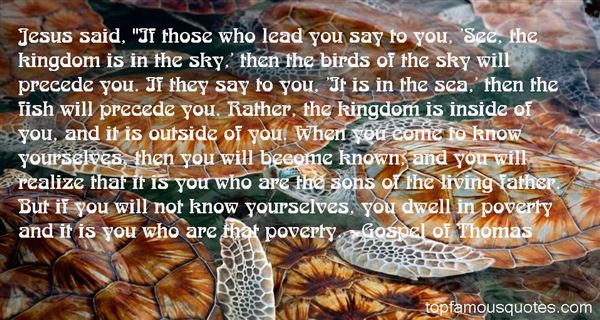
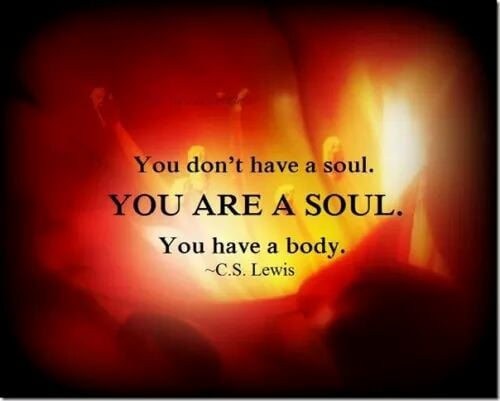

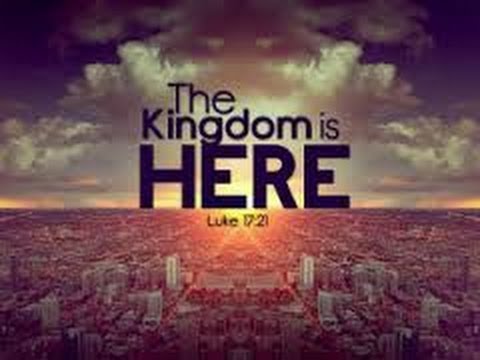
Simple. Because they didn't come down from the Apostles or their disciples and people close to them.
The Gnostics were a sect. A cult basically. You are, of course, welcome to believe their religion, that is your choice, just as you are free to join a Wako cult or Ashram in India. You are also free to believe in Pagan beliefs.
The Arians, on the other hand, as you say, were far more widespread. They originated and gained greater support in Churches where Gnostic texts were more widespread (despite the Gnostics believing something different - they believed that Christ was a God-like figure or Aeon). Arianism still occurs today with the likes of the JW - which is a more extreme form of it in many ways. It's a misunderstanding of the Gospels which portray Christ as a God-Man, both 100% divine and 100% human. On the surface, Arianism was very close theologically to Orthodox Christianity, however the Arians over-emphasised the Human side and led to some very dubious theology such as the Son being subordinate to the Father, despite also being God. You are quite right in saying that their number and theology became so widespread that a Council had to be convened to debate and clarify what Christians had understood of the nature of Christ since the beginning.
You are wrong, however, in saying that 1st council's mission was to decide which were the correct books - they had been around for longer than the Arians and the 1st Council had nothing to do with deciding on Scripture itself.
As for the date, as far as I am concerned there is not a huge debate on this subject. It was settled at the Council - that was why it was convened. All the Christian Churches in the world were present and/or represented. All Arian churches were also present and represented and all of the Arians concluded that the Orthodox view was beyond doubt the correct theology.
As for this question:
"How can you be so sure gnosism & 'Christ Consciousness' that is so prevelant within so many other religions wasn't the real message of JC?"
Scripture and Christian tradition spell this out clearly. God became man, was crucified and died, conquered death and resurrected after 3 days.
By those very occurrences, this goes way way way beyond having "Christ consciousness". This is literally coming back from the dead. This is God walking the earth. This is God suffering like and as a man. This is Theosis and salvation for all of mankind.
Lastly, I will say that Orthodox Christians do not say and believe that there is absolutely no truth in other religions, just not the full truth. And even then, we have so far to go for Theosis.Uh huh. I used to believe like you. You seriously need to read my spotlight hub.
It isn't true that ALL Christian churches around the world were represented. It is why there was a division for so long before Rome's 2 empires united. Its why there are Catholic, Coptic & one other early version that I can't remember.
It IS true that the 1st council was held to DECIDE between these two ideals: was Jesus 'god in the flesh' or was he 'more human'.
As it turns out, BOTH are true. Jesus came to show us who we are and how to navigate the realities & illusions of our lives on this earth. He brought the truth - and (many, not all) Christians have been distorting & dogmafying it for centuries.
Jesus didn't come to create yet another religion to stuff down people's throats. He came to set our minds FREE from the bondages of paganism & lies that were so familiar, people could hardly believe anything different. Kind of like how things still are today.
Like I said, I used to be you and argue your side. It wouldn't hurt to at least check out what I've come up with...
Actually once again you are incorrect. All Churches were represented - that is what Ecumenical means - 'of the known world'. It was the first time ever a meeting was convened between all the Churches of the known world. All of the 5 original Great Patriarchates were represented in significant numbers, including Rome. The Copts were part of Alexandria for obvious geographical reasons, then you had the Antiochans (Syria), Jerusalem and Constantinople.
The split in the churches didn't come until later with the 4th Ecumenical Council which took place at Chalcedon. What is known today as the Oriental Orthodox Church split off from the main church (what we know as the Eastern Orthodox Church today). The OO Church includes the Copts and Armenians and Assyrians among others. Rome didn't split off until hundreds of years later.
You are correct in saying that BOTH are true regarding Christ's nature. That is 100% the Orthodox Christian view and it is what the 1st Ecumenical Council concluded. In fact even Arianism believed this, however their interpretation of it was slightly skewed.
Thank you for your offer to read your blog. However, I must politely decline as there is far too much Orthodox evidence out there for me to change my mind on this. I am happy where I am. But again thank you for your kind offer and I wish you well and much love in your journey.Doesn't it seem odd that one particular group, the gnostics, were represented but ended up at the wrong end of a pogrom to wipe them and all their literature from the face of the earth? It would seem that only the politically powerful (or religiously powerful if you prefer) councils were actually represented. Those of at least a similar concept of Christ and what he taught.
You are welcome - although I will always push just a bit more because I used to be you, as I've said. I feel that I have not only the 'right' to poke & prod just a bit more; but also a responsibility to do so. However, I certainly won't hold it against you if you still decide to decline, LoL! I adore the diversity of free speech, free thought & free expression as much as God does.
Apparently we have different sources regarding the council, who how all was there & why, LoL! Let's just drop that part. Everyone has their own slant...
Its just that the pagan-angle of things is a diversion that keeps the eyes of your soul just a bit 'to the side' of God and our reality concerning him. The 'holes' within your version of belief are not harmful to you or anyone else, in and of themselves...
But, getting Jesus & his purpose among us in perspective is important now because of how harmful the 'unworthy sinner' aspect of things affects our entire world in so many harmful ways. It hurts individuals & wide swaths of people, alike - and that's not counting 'judgments' on top of that.
I always challenge every Christians (and Atheist) I come across - because its the 21st Century; and I think our future generations deserve to grow up with a handle on the truth about themselves for a change. Its hard to confront possible errors in your version of truth - that's why so many people don't do it.
And its okay, its not a requirment, either - anymore than not believing in JC's pagan story in the bible is going to send you into 'hell'. Cuz hell doesn't exist.
Hi Wilderness, I'm replying to your last post.
No it doesn't seem odd because a) the Gnostics weren't represented because they weren't even Christian (they are an entirely different religion altogether but their religion is understood in a Christian backdrop and borrows the Christian canons and story - read the wikipedia article on Gnosticism and watch some youtube lectures on the subject - it's actually quite interesting) and b) their texts were not totally destroyed and they were not subject to a holocaust or genocide. As fas as I am aware many of the Gnostic texts and religious beliefs are still available today. Google is your friend on that.Sounds too much like "Catholics aren't Christian" or "Mormons aren't Christian" or even "anyone not my sect is Christian" to me. Gnostics were most definitely of the Christian persuasion, whether their canons were identical or not. The biggest difference was that they found spirituality and God in themselves instead of in the priesthood, and that could not be allowed.
No, their texts were not totally destroyed - only the ones the "real" Christians could find were subjected to destruction. As far as genocide - gnostics as a group were hunted and killed for no more reason than being gnostic, and just like their texts that it wasn't 100% successful down to the last child doesn't change that.
Yes, google is your friend on that.
You are at your own dead end to the subject . and you will continue as always with your decision. Thats allowwed . but you make no sense to me no matter what you write.
So we can stop here.LOl Fair enough! You don't make any sense to me, either - all I seem able to get from your posts is that God wrote the bible because YOU know God wrote the bible. Something to do with rainbows, because rainbows are referenced in the bible, are real and therefore God wrote the bible.
I cannot for the life of me follow the reasoning. The process being used to come to the conclusion is alien to everything I've learned or been taught, and I simply do not follow what you're trying to say. So yes, we can stop - I really don't think you're able to explain your opinion any better than you already have, and that explanation follows no line of logic or reason that I'm familiar with.
You have a good day, K&T - perhaps we'll meet again with better understanding.
It is accurate to say that God wrote the Bible. According to 2 Timothy 3:16, Scripture is “breathed out” by God. Throughout the Bible, it is obvious that God is being quoted: over 400 times in the Bible, we find the words “thus says the Lord” (NKJV). The Bible refers to itself as the Word of God dozens of times (e.g., Psalm 119; Proverbs 30:5; Isaiah 40:8; 55:11; Jeremiah 23:29; John 17:17; Romans 10:17; Ephesians 6:17; Hebrews 4:12). The Bible is said to proceed from the mouth of God (Deuteronomy 8:3; Matthew 4:4).
However, saying that God wrote the Bible does not mean He took pen in hand, grabbed some parchment, and physically wrote the text of Scripture. His “writing” of Scripture was not a physical action on His part. Rather, God’s authorship was accomplished through the process of inspiration, as human writers wrote God’s message.
So, it is also accurate to say that inspired men of God wrote the Bible. The doctrine of the inspiration of Scripture essentially teaches that God “superintended” the human authors of the Bible so that their individual styles were preserved but the end result was precisely what God wanted. When Matthew, for example, sat down to write an account of Jesus’ ministry, he relied on his memory (he was an eyewitness to the events he recorded) with help from the Holy Spirit (John 14:26), keeping his intended readership in mind (Matthew wrote for a Jewish audience). The result was the Gospel of Matthew—a narrative full of Matthew’s vocabulary, Matthew’s grammar, Matthew’s syntax, and Matthew’s style. Yet it was God’s Word. The Spirit had so guided Matthew’s writing that everything God wanted to say was said, and nothing was included that God did not intend to say.Sounds like you are assuming the bible is true in order to say that because it says God wrote it that He wrote it.
This is a major logical fallacy. You cannot assume "X" in order to show that "X" is true.Gosh, this is a good 'ol question... Yes, most Christians realize that God did not actually take pen in hand and 'write' the bible; but the ideal that insists it says 'everything & only what God wanted' is interpreted by a matter of individual perspective. I mean, one Christian will insist that things like abortion & same-sex relationships are sins to be judged; and another Christian will embrace the 'love' side of things and decide to 'not judge' and even INCLUDE those sinners.
It is the reason why there are so many different variations of Christianity (and every religion, really): how each person chooses to interpret things or 'what sounds right' to them.
The truth is, 'God' breathes life into every thought thunk, said & written down. The Council of Nicea decided that 'gnostic' versions of scripture were not credible because they did not claim Jesus was God. That was what they came together to decide: was Jesus actually God or a normal human like us who happened to be enlightened?
TWO versions of Christianity were created - in the same way that there are two versions of just about every religion (Kabbalah is the other version of Judism, for example). One version - the pagan one - became bigger & more widely accepted, because that was what most people were capable of believing at that time. Plus, Rome's pagan leaders proliferated & promoted it to unite the many pagan religions under the Roman Empire.
The second version continued 'underground' when the gnostic gospels (and anyone who was caught with them) were destroyed. It fortunately didn't completely eliminate it, though - cuz you can't eliminate the REAL 'word of God' which is SPIRIT and cannot be tampered with - not by any power on this planet, and certainly no paper, ink nor writing implements required.
This '2nd version' of Christianity is what has been coming out more & more over the past few decades. The really cool thing is that SCIENCE is starting to dovetail into this more unfamiliar version. Check out my 1st spotlight hub if you want to know more.
Neither religious view is accurate: atheist nor Christians who believe in 'salvation' (not every Christian believes in that concept). The existence of God can be proven a few different ways; and now more than ever since Science has begun to take baby steps into the non-physical parts of our world.
Truth is stranger than fiction & life is far more fascinating then we knew, LoL!



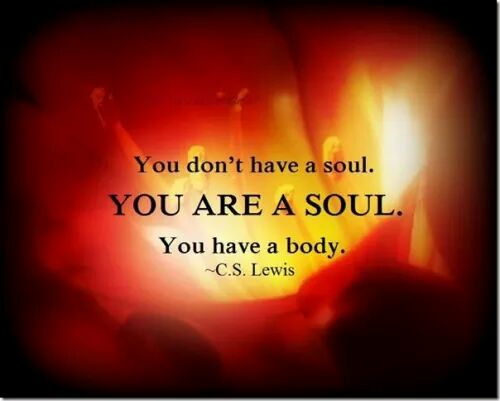
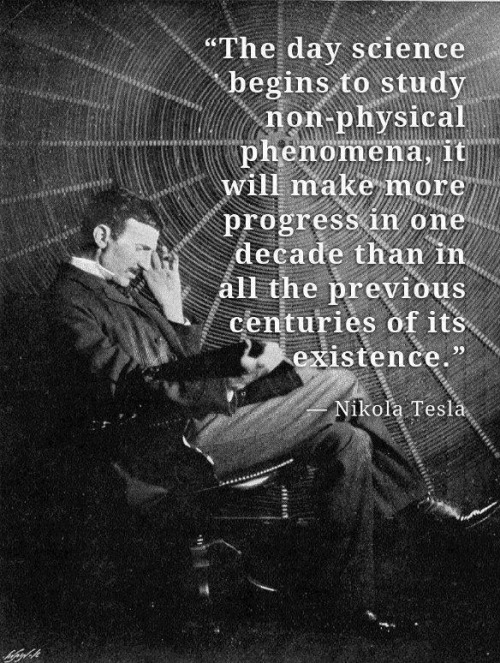

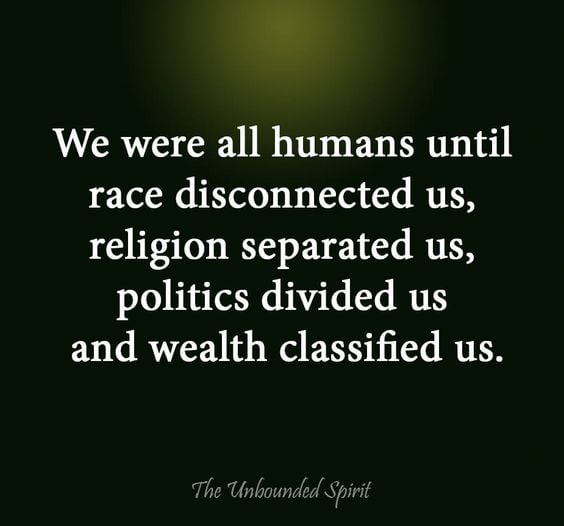
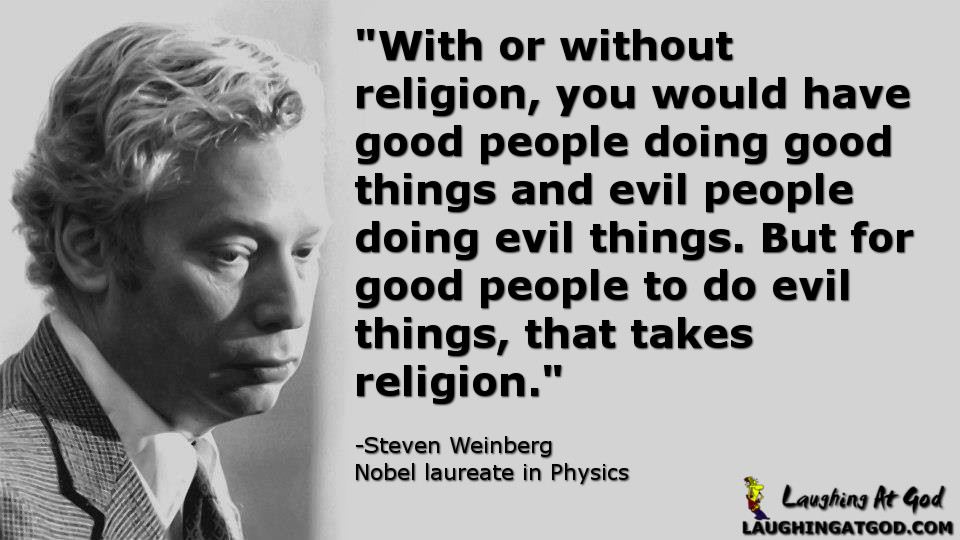
Excellent! I think physics has to catch up to metaphysics before we can answer more of our questions. Loved the quotes, and I'm a big Alan Watts fan. I didn't know being left handed was a sin. Oh well. I believe the love and accepting parts.
When one has two disciplines with such radically differing criteria for determining truth, as well as radically different fields of study, I'm not sure that talking about "catching up" has any meaning at all. It's like saying a tree needs to catch up with rocks, or Mars. There just is no comparison between the two.
Your comment doesn't even sort of make sense. We're talking about science, experiments & theories beginning to reveal & explain non-physical things that surround us and make up our reality - stuff that doesn't have much to do with religions beyond putting them into a better perspective for us.
Atheists can be just as guilty about not being able to see beyond their dogma as some religious people are about clinging to theirs.No, we're not - the comment was that metaphysics is ahead of physics. One is science, requiring experiments and proofs, along with peer review, while the other does not. Unless you think you can provide a repeatable experiment in the field of meta-physics, something that can be performed over and over by different people?
This has nothing to do with religion or atheism; it has to do with what is considered knowledge, truth and proof. And the two fields, meta-physics and physics, have nothing in common here. The 7 common letters in the name do not provide a commonality between the two. Metaphysics is not a science at all, but a philosophy and does not use the same methodology or have the same requirements as science does.Its okay, don't look into it. We wouldn't want your opinion of the spiritual to change anymore than we want any other religious person's extremist view to change. Know-it-all ignorance is the most exquisite bliss.
I confess, comments like this totally confuse me. The topic was a comparison between a philosophy, primarily spiritually oriented, and the hard science of physics. I don't see any real comparison being possible, nothing of one being "ahead" somehow, and said so.
Whereupon your reply is a snotty comment that my opinion of the spiritual should not be changed and that ignorance is bliss. All I can conceive of as a reason is that you prefer philosophy and religion to science and are afraid that it is somehow inferior? Was there something else you wished to present or was that all of it?I see what you were saying about Jean's comment. Physics can't 'catch up' to meta physics. What people attribute to the idea of meta physics has to prove itself before science would even consider stepping in.
Partly. It's like saying that your shirt needs to "catch up" to carbon dioxide. There just isn't enough similarity for there to be any comparison or "catching up" to do.
Philosophy and science haven't really been comparably since the days of alchemy - when the scientific method was defined it set science on a totally different track, and one that simply does not join with philosophy, religion or any subfield like metaphysics. That term really needs changed to eliminate the similarity to "physics" entirely as there IS no similarity.Like I said, ignorance is bliss - your hardlined, black & white reasoning is as dogmatic as any religious militant - which makes you as ignorant. Stop putting more words into my original comment than I had, then perhaps you can comprehend what it said, better.
I agree. But, it appears the thought of it sends some people into a tizzy.
I understand that you don't see any real comparison - like I said, atheists don't want to LOOK at this stuff anymore than religious militants do for the same reasons: they are all so RIGHT. Your interpretation of my snotty comment is as ignorant as your lack of bliss, LoL!
My point earlier WAS... IF anyone wants to know more about how the polarized subjects of 'the spiritual' and scientific theories are beginning to dovetail into each other, read my spotlight hub. If you're not interested, don't assume you know what it says or what its all about.Misfit, I'm not an atheist and Wilderness' comment not only made perfect sense; but is so basic that I am surprised anyone is arguing it. Let alone attempting to insult him because of it.
That's because very few people are willing to consider anything beyond what they think they know. You've labeled my suggestion that science & spirituality are beginning to mesh as nonsense before you even considered it - just like he did. That is what I'm talking about. I don't really care about the specific words he used nor how much they make sense to anyone. They are moot because my sentences ALSO make sense.

I suppose, it could be argued (if you expand on your thoughts) that your comments make sense. I don't know. We'd have to move in that direction for me to make an informed decision on that claim.
But, we aren't so far apart. I agree that science appears to be proving a lot of the assumptions we have made thus far. But metaphysics and physics are, as he said, connected only by the use of a similar word. One cannot 'catch up' to the other as Jean suggested and you are arguing in defense of.While I can't speak for Jean, I'm sure she simply meant to differentiate between the physical & non-physical that I was talking about within my original comment that she was responding to. I didn't originally use those words, but they have a 'generic meaning' for most people. I understood what she meant. Both of you turning it into this big deal is, sorry - judgmental, ignorant & rude.
I can say that, from reading your posts, you aren't quite certain of the definition of those words. If you were, you might be interacting in this conversation quite differently.
All I see from people like you is judgement - and I have absolutely no tolerance for it, anymore. You read words that you didn't think were appropriate & said what you felt needed to be said to correct my 'bad' attitude. Whatever.
I don't care how 'right' or 'wrong' anyone is anymore - I'm tired of being judged because I don't portray an impression that you think I should be portraying. PC is OUT, nowadays - don't you remember? LoL! We're all so damn tired of it... I have no respect for people like you anymore; and I could give a crap less what you think about me. Judgement and hypocrisy thy name is Misfit chick.
Judgement and hypocrisy thy name is Misfit chick.It's OK you spoke for me, you got the point.
Consider this:
From the point of view of modern astrophysics, the Universe started at the Big Bang. The whole of everything was held at a very small point. It blew up from there, and the Universe has been expanding ever since. Scientists have measured this. They also believe that at a certain point, the Universe will stop expanding, and will begin to contract. Over a very long time scale, it will fold like a tent into that small, dense ball that was before the Big Bang. Eventually there will be so much pressure that there will be another Big Bang, which will expand and contract, and this will continue in a cycle, an immeasurably long time scale.
What I'm describing here is the modern scientific view. It is ALSO ancient Hinduism. In the Hindu Myth, the whole Universe comes and goes in cycles. They imagine it like breathing in and out. They call it the breathing in and out of the Brahman. But the point is that the Universe is constantly recreated and destroyed, over and over again. It's the exact same story, but which came first? The view of physics has caught up with an ancient myth. Obviously not the Christian one. The ancient or even somewhat modern people were not up on science, but they understood metaphysics, they were on to something, which will one day be proven.You're a little behind the times, by several decades at least. Current thinking is that the universe will one day expand far beyond what it currently is, cool and everything just slowly stop. Not that planets will stop circling stars, but stars won't shine and energy will be dispersed almost evenly everywhere, with no new forces making things "happen". The cyclical concept we out with the discovery that the expansion is accelerating, not slowing.
Deleted
I'm sorry. Perhaps if you indicated in each post that you aren't interested in truth I wouldn't be tempted to provide information you don't have.
See? I can be snarky, too. I don't know what's got up so uptight - for someone wanting physics to catch up, you certainly don't seem interested in learning anything.
Jean, I replied to your post with some surprise that anyone would think that philosophy and physics have much of anything in common - in my experience any time science "invades" the realm of philosophy with hard study and knowledge the topic is promptly dropped by the philosophers. Or perhaps the claim is made that science is wrong, as in the study of evolution, without providing any reasoning or evidence. Alchemy is an example; as soon as we began to truly understand elements and what it means to transform one into another it is no long of interest and the alchemists moved on to another field. Or perhaps, as here, when the "breathing universe" postulated by thinkers long ago is shown wrong anger is the result, coupled with personal attacks.
I don't get it. It's almost as if imagination is known to produce knowledge without need for evidence, proof or even truth."...I'm sorry. Perhaps if you indicated in each post that you aren't interested in truth I wouldn't be tempted to provide information you don't have. "
Well damn! ^5!
GAI was talking about physics and metaphysics. But there are so many more examples of science catching up with ancient ideas. Chinese people were talking about elements long before any scientists existed or anyone knew of them. There is always a kernel of truth to philosophy, it explains a thought or series of thoughts in a different way, one that is less scientific, but came down through centuries before people had the words to explain things in scientific terminology.
Hi Jean,
I am not sure what your exchanges with Wilderness on this thread have been about - I haven't followed this thread, I just popped in.
But... considering past exchanges I have seen, I had to give Wilderness props for the quoted reply.
ps. Maybe I should go back and take a look, I usually enjoy conversations about the metaphysical.
GAHi GA,
Dr. Neil DeGrasse Tyson speaks of a Universe which will continue to expand, has begun to slow down, and eventually will stop. At that point it may atrophy, and contract, as in the Hindu philosophy. He is certainly not outdated by decades.
Scientists don't know everything, they can only interpret what they see. Three blind Hindu men were all touching an elephant and describing what they thought an elephant was. Each was touching a different part of the body. One felt a very tall part, and described the elephant as a large tree. One felt the height and thought the elephant was a rock or a wall. One felt the trunk, and said the elephant was like a snake. Now, since they all felt something different, they were all right, and also all wrong.
Or as physicists say, the Universe is made of particles that behave like waves. Or is it waves that behave like particles? It's all in the way you look at it.
In Hermetic Law, every lie is part true, and every Truth is part lie.
I've belonged to a Metaphysical Society for 40 years. I like to see something from a different point of view.
I believe that mythology, imagination, metaphysics and a plethora of topics are more related than we think."I believe that mythology, imagination, metaphysics and a plethora of topics are more related than we think."
On this we could agree, for all of these (outside of those created for pure fiction) are attempts to explain what we see around us. But the connection is within us, is a part of what makes us human rather than a connection to reality. Does that make sense to you? We are the connection, with our feeble attempts at explanation (as opposed to understanding), rather than any necessary correlation to the reality that exists outside our minds.
It is that difference between "explaining" and "understanding" where science comes into play, for it is only science that attempts to actually prove the explanation to be true. The rest make observations and draw conclusions but never attempt proof, and that is why I don't see any real connection between imagination, mythology, metaphysics, etc. and science.HI Dan,
I can mostly get on board with your last post, it's fair and reasonable. It's much harder to prove Metaphysical things, like where does our soul go when we die? Edgar Cayce, the great healer and psychic, said all the experiences in our life are stored in our hearts, and are connected to a silver cord when we die, in each life (I believe in reincarnation). Then they are stored in a huge library, or the Akashic Record. I have a hub on it in Exemplore. I've been with many loved ones at their times of passing, and still look for that cord, though I never found it yet.
On the Nicaean Coucil, we agree.Yes, I believe we're getting closer to an understanding. It's interesting that you mention "where the soul goes" for science has tried to answer that question, beginning with proof of a soul. Assuming that a soul has weight (who is to say no?) attempts have been made to show it exists, but unfortunately all have failed and without such evidence there is nothing left for science to work with in determining where it goes. Without knowing the soul exists the question just doesn't arise at all.
Likewise for the thinking of Cayce: there is absolutely nothing that has ever been found in the heart muscle that might contain memories - while the beginnings of understanding of memory in the brain is occurring, it is only there that any progress has been made. So this, too, leaves out any investigation of a silver cord coming from the heart, whether that term "silver" refers to a color or to an element with 47 protons. The Akashic Record suffers the same fate in that the astral plane where it exists cannot be found, so obviously the Record cannot be found, either, and cannot (according to science) even be shown to exist.
Yet all of these are acknowledged to exist in the field of meta-physics. They are as real as the skin on your hand, whether we can find them or not. But science cannot find the Record and thus will not acknowledge it's existence. This is why there can be no real connection between the two; science requires that which the other disciplines do not, so until it is found there can be no agreement at all. It's the point that meta-physics cannot "prove" anything at all as scientific methodology cannot be used in the field. If it were to happen, it isn't meta-physics, but science in action! Or so says science, for it is only there that proof can be obtained.
I never even thought of the element with 47 protons! OMG. I always look for the color silver. Hopefully I won't get a chance to check soon, I usually get thrown out of ER's in emergency situations when they see a grieving woman checking all over the loved on and the floor for a silver cord! My Husband was the "science" person around here, though also very interested in metaphysics. Thanks for adding that. I'll be reading more tonight.
Take care.LOL Whereas the element was my first thought and it was only much later that the color even entered my mind. A difference in history, I imagine, for my formal training is in chemistry and it was much later that I've dabbled in the arts.
Hi Dan,
Of course, being a chemist, you would think of the elemental chart. It never crossed my mind. My husband loved science, his personality was like Doc in the Back to the Future series of movies
Hello again Jean,
I went back a bit and followed Misfitchick's comment and your response, (the one that prompted Wilderness' comment). But, I did not go back far enough to form an opinion on your, or Wilderness' perspective - beyond thinking that Wilderness might have taken a different view than I on the physics vs. metaphysics coupling.
I think I agree with you and Misfitchick, but I have to give it some thought. I'll come back to it after I have.
GAOK. I added more about looking at different points of view. Have a good night.
Yes, there is usually a kernel of truth. Not always - sometimes that kernel is buried so deep and requires such twisting as to be really not there at all.
But there is another possibility in the ideas of a breathing universe. The universe is not cyclical (we think), but the sun is, at least to a point. At some time it will expand until it engulfs the earth, and then once again shrink. It will destroy all life on earth, but it is possible (unlikely, but possible) that life could re-ignite on earth a second time when sol shrinks again. If so that is the end of it - the next step is for the sun to go out, whereupon life will die again, but it could cycle twice, giving at least some credence to the ancient thought.
I did read (skim - it's long) your hub. And I've looked at some of your other work, including some posted here in the forums (at least I think it was yours). All of it, almost without exception, denies the tenets of the scientific methodology required by science, leaving it in a completely separate field without any real comparison being possible.
It's like your picture of the universe - a torus with an empty center. You haven't experimented with this, and haven't observed it, either. No one else has. Yet those are requirements of science, not something to be shunted aside because you can't do it! This is what I mean when I say they are not comparable - it's not that the torus is wrong, it's that the methodology science uses cannot show it to be true. To science, it can be nothing but a hypothesis, not even a theory but merely an imagined concept awaiting proof one way or the other. Or perhaps enough evidence (experimentation/observation) to promote it to the level of "theory" (which is NOT the layperson's definition of the word).That's all they are, believable theories - theories that help explain so many unexplainable things throughout the existence of humanity. I never said any of it is fact. But, it does a much more 'believable' job of explaining the reality of our existence than the bible, or any religious text by itself, does. You don't have to believe in any of them; and with this explanation, you don't have to AND no one judges you for NOT believing in any of them...
Can you see the logic of mixing science, spirituality & imagination, now? You will never convince religious people that there is no God no matter how many scientific factual-theories you come up with: because the fairytale is too powerful & BELIEVABLE within their minds - as believable as a logic-ridden atheists perspective.
IF there is any actual substance to spirituality, science (within whatever label or word you want to put it under) will eventually validate it. For now, again - they're just theories that shed light on potentially different stories beyond dogmas. Its a good place to begin rethinking the concept of religions."Can you see the logic of mixing science, spirituality & imagination, now? "
No. But on the other hand these hypothesis (NOT scientific theory, which has much more onerous requirements) ARE a suitable starting point for scientific investigation. But ONLY if the scientific method of experimentation, peer review, reproducibility and repeat experimentation, etc. are used to verify them. If it is not, then the work remains solely in the province of philosophy, and that's exactly where the problem lies for the concepts you've come up with are canNOT be investigated by any field of science.
Understand, I'm not disagreeing with your thoughts, not saying they are wrong. Just that science has not confirmed them, has not provided any evidence at all that they are true. This does not mean they aren't; it means that they are not amenable to the methodology science requires a researcher to use. It is possible that in the future those concepts will be hardened into something that CAN be investigated, tested and researched, but for now there can be no mix of the two.
And, going way back in the thread, it means that there is no "catching up" to do. If a concept or possibility cannot be determined to be true then there is nothing to catch up with.
Misfitchick, I like your thinking on this.metaphysics thing. I try hard to stay away from religious topics, but on this one, you snagged me. This metaphysics tangent could make an interesting conversation.
But, I hope you might consider rationing your memes to less than a full-page scroll to get to the next comment.It would make it easier to address the point you were using a meme to make.
GA
Related Discussions
- 29
Why do people not understand that the Bible does not contain all of God's word?
by Rodric Anthony Johnson 10 years ago
Why do people not understand that the Bible does not contain all of God's word?Are people being purposely taught that the Bible is all containing of God's word. Do people not know the history of the Bible? The book is a collection of unrelated books put together by the catholic church--specifically...
- 55
Thou shalt not commit adultery - what do you think the bible means by adultery?
by Angele Parris 7 years ago
Thou shalt not commit adultery - what do you think the bible means by adultery? Give biblical proofI have heard it said, Jews or not - Thou shalt not commit adultery. Based on the old testament, do you think the bible's definition of adultery is the same as today's definition of adultery?
- 184
10 questions for the religiously impaired.
by earnestshub 12 years ago
10 Questions To Ask A Christian.If you ever find yourself in the unfortunate postilion of having to spend time next to a christian it's important that you have things to say. Often at times when the christian feels the conversation is drying up they will start quoting passages from the bible in an...
- 108
Is the Church Authorised to Create new Doctrines?
by Disappearinghead 9 years ago
If a doctrine or belief that is taught by the Church today was unknown to the 1st century Apostolic Church, is it a valid doctrine? Is it inspired by God, or is it a false manmade doctrine?
- 57
Which came first, Christians or the Bible?
by Captain Redbeard 8 years ago
I just read a post from someone stating that Christianity is based on the Bible which stands to reason, "If Christianity is based off the bible then that means it would have never come to furition since the book would never have been written because no Christian would have existed before...
- 58
Literal Readings of the Bible
by Liam Hannan 13 years ago
Just a question for those Christians who profess to believe that the Bible is the literal and unalterable word of God; how do you justify the removal of the books of Baruch, Wisdom, Tobit, Ruth, Judith, 1 Maccabees & 2 Macabees during the 16th century?







